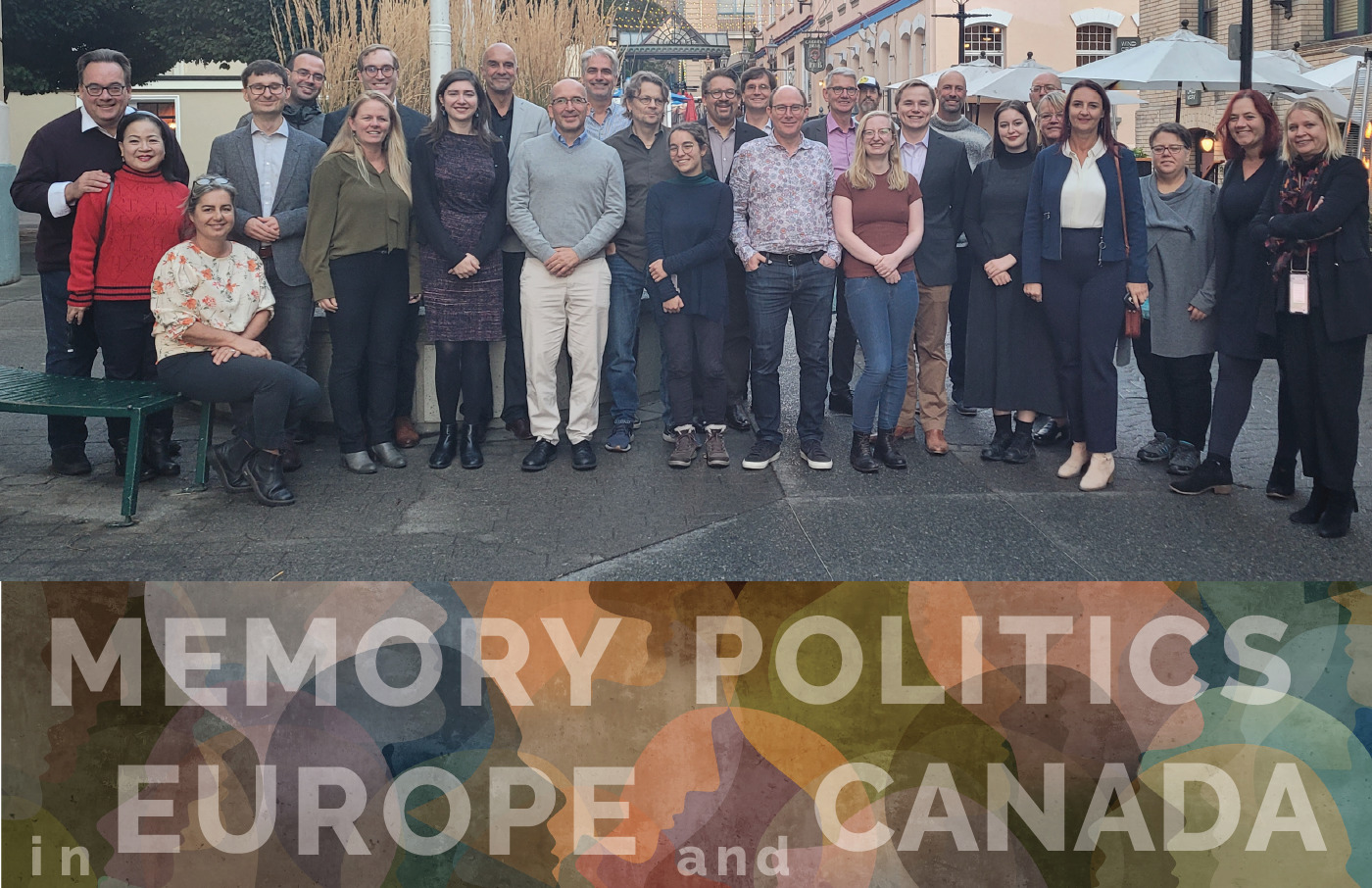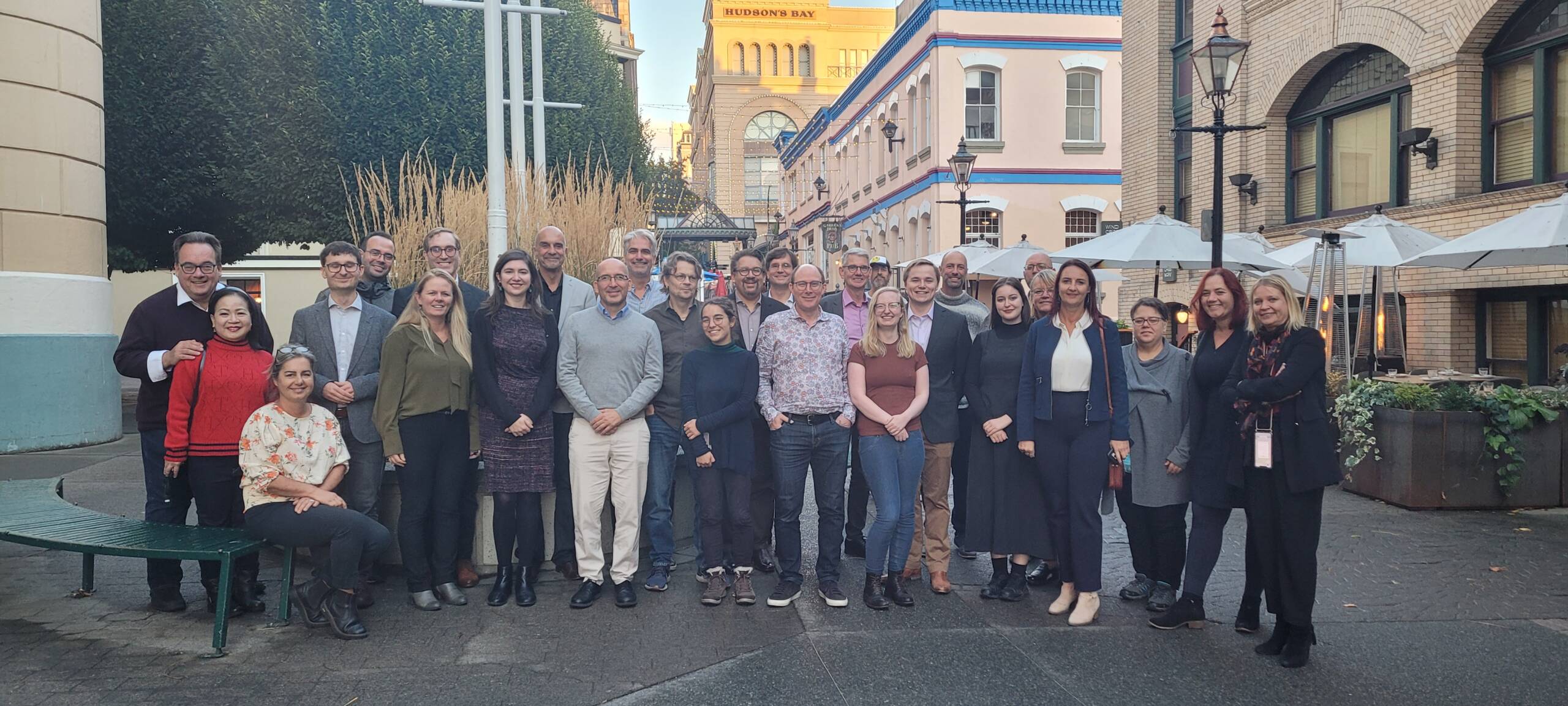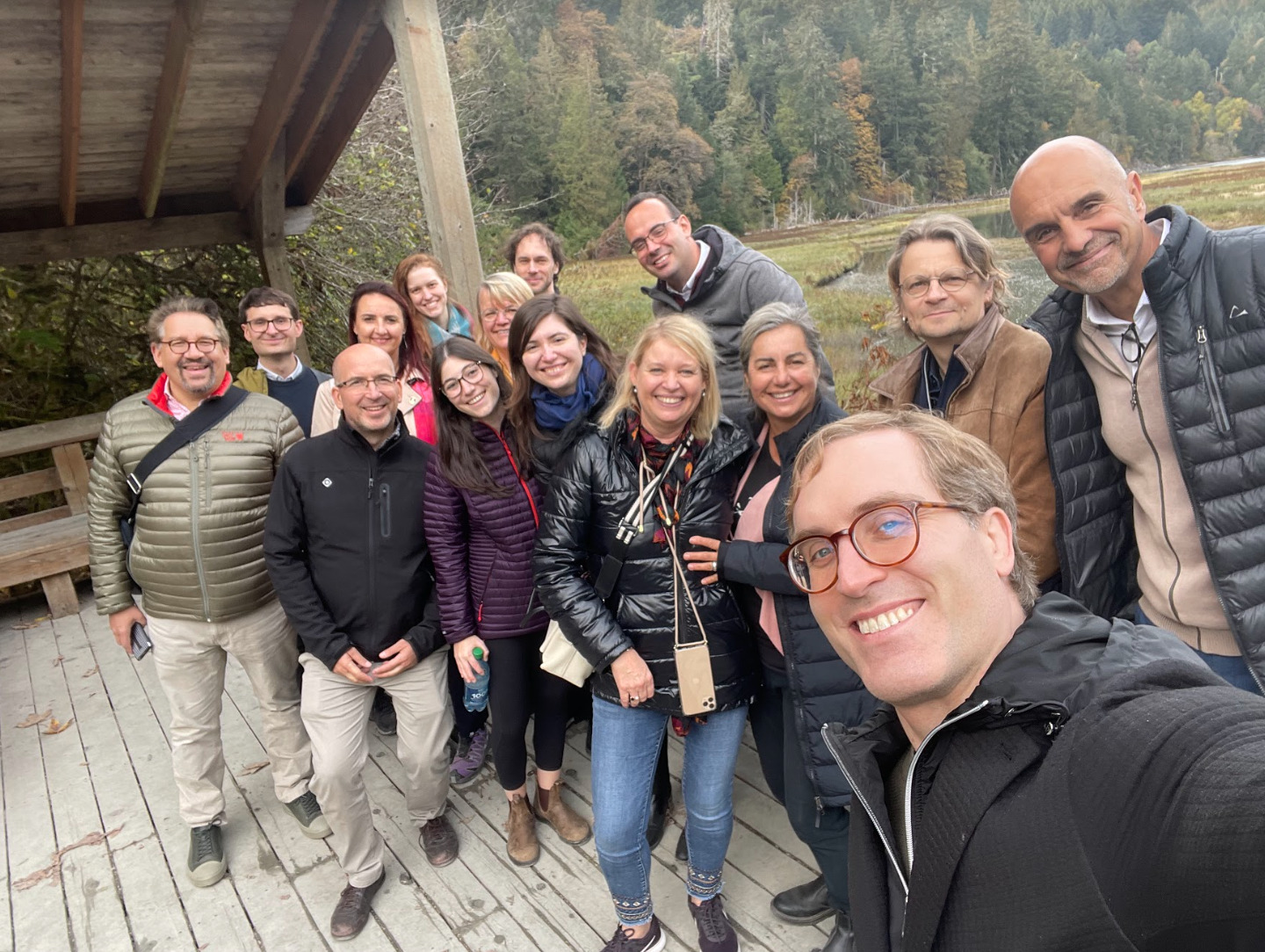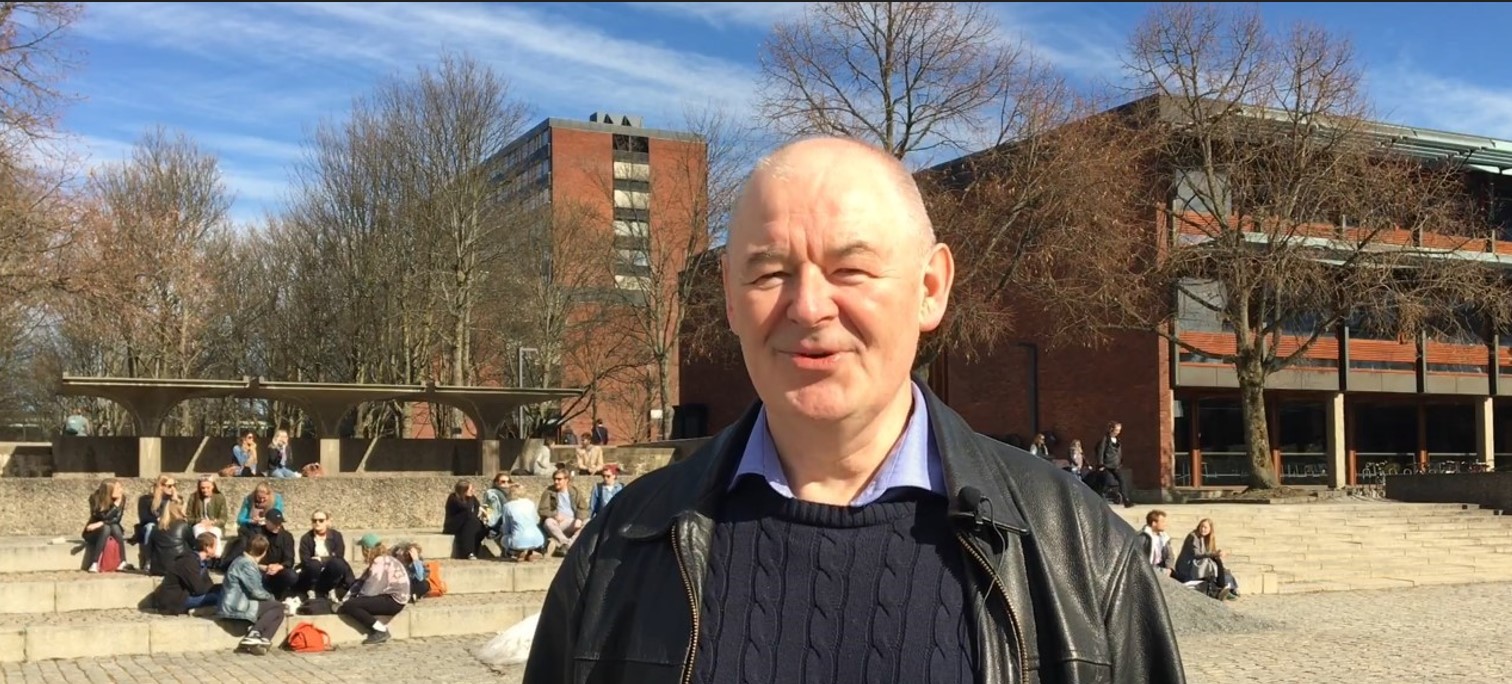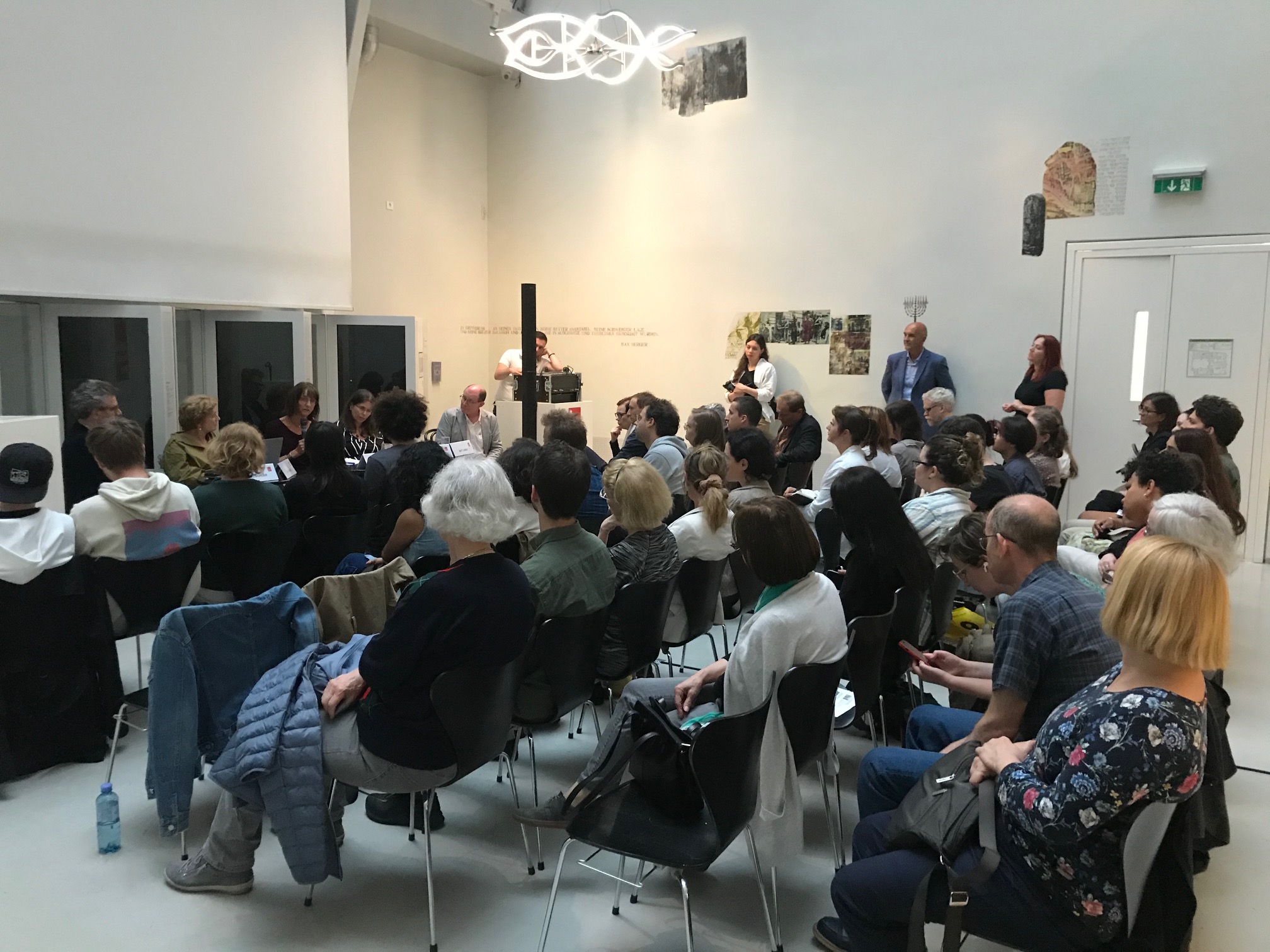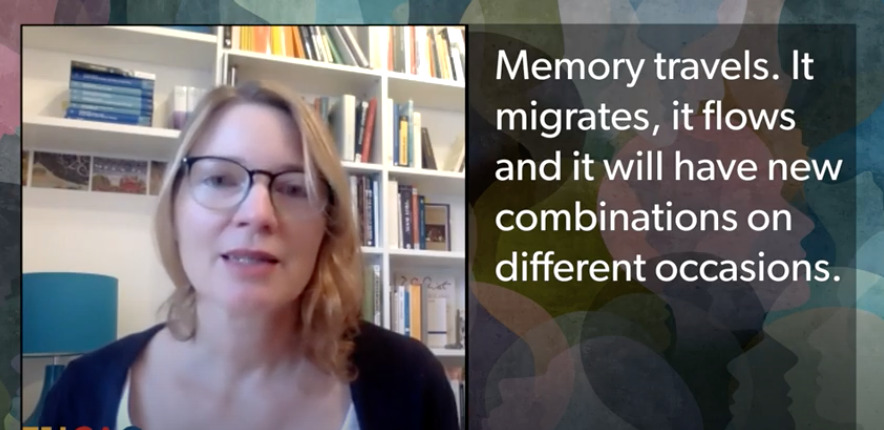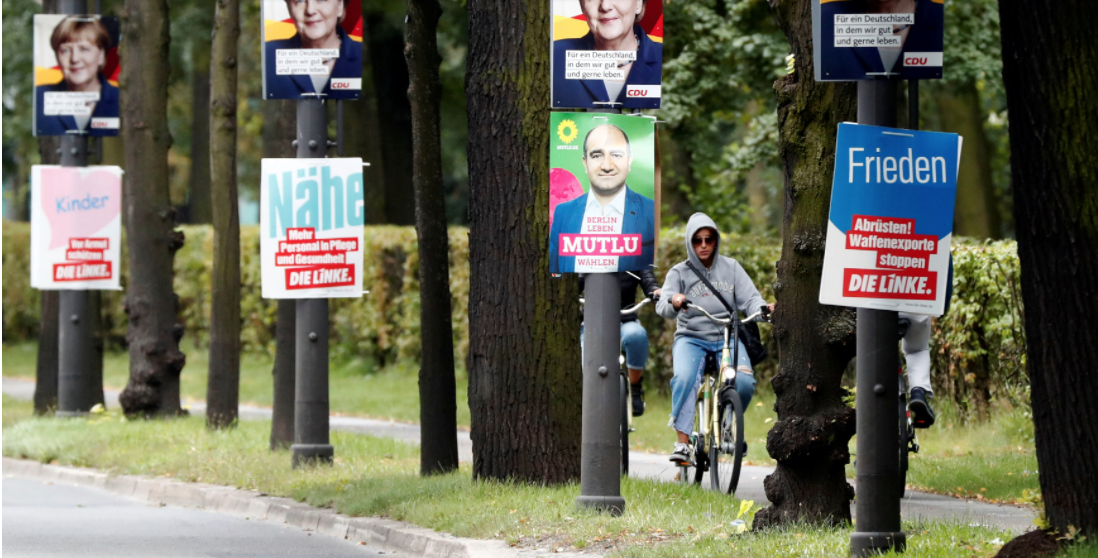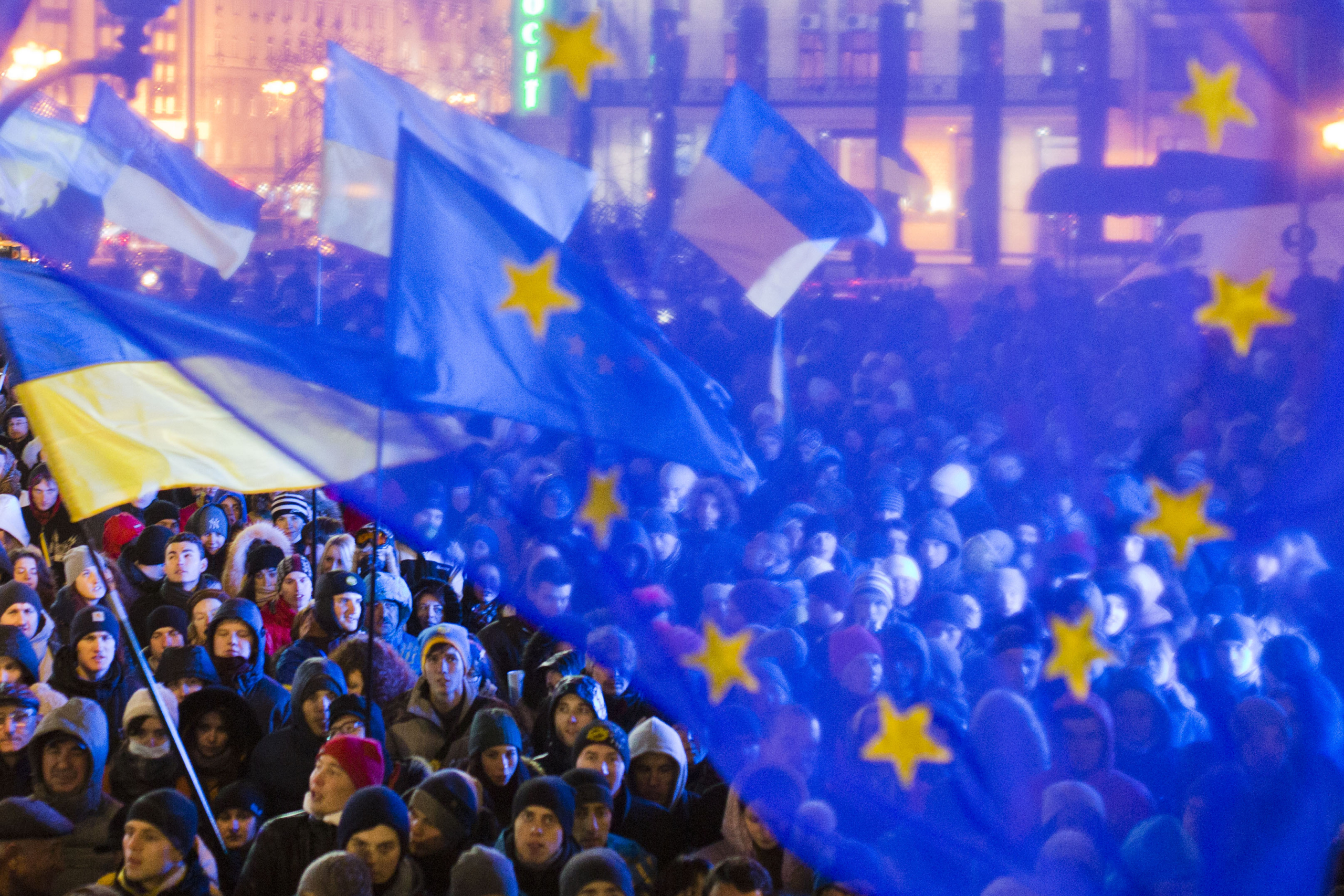Victoria Conference Summary & Fotos
From October 21st-23rd, 2022, EUCAnet’s Jean Monnet Network European Memory Politics (JMN EuMePo) and the project European and North American Perspectives on Commemorating and Addressing Past Injustices (Funded by the Konrad Adenauer Foundation Canada) hosted a series of events during the conference
“Addressing the Past – Shaping the Future”.
The organizers of these events were the Co-Leads of EUCAnet Beate Schmidtke (Manager of the JMN EuMePo and the KAS project) and Oliver Schmidtke (Director of the Centre for Global Studies (CFGS), lead of the JMN EuMePo and the KAS project). Over 30 scholars from Canada and Europe participated in scholarly debates on key issues in the field of memory politics from a comparative, transatlantic perspective.
Day one started with a Graduate Student Panel with presentations and discussions based on the Canada-wide call for essay submissions and the travel awards.
The winners of the graduate student essay award: Emily Grenon from the University of Toronto and James Collie from the University of Western Ontario, presented the essays and engaged in a discussion with senior and junior scholars. After a break, the graduate students presented their current research
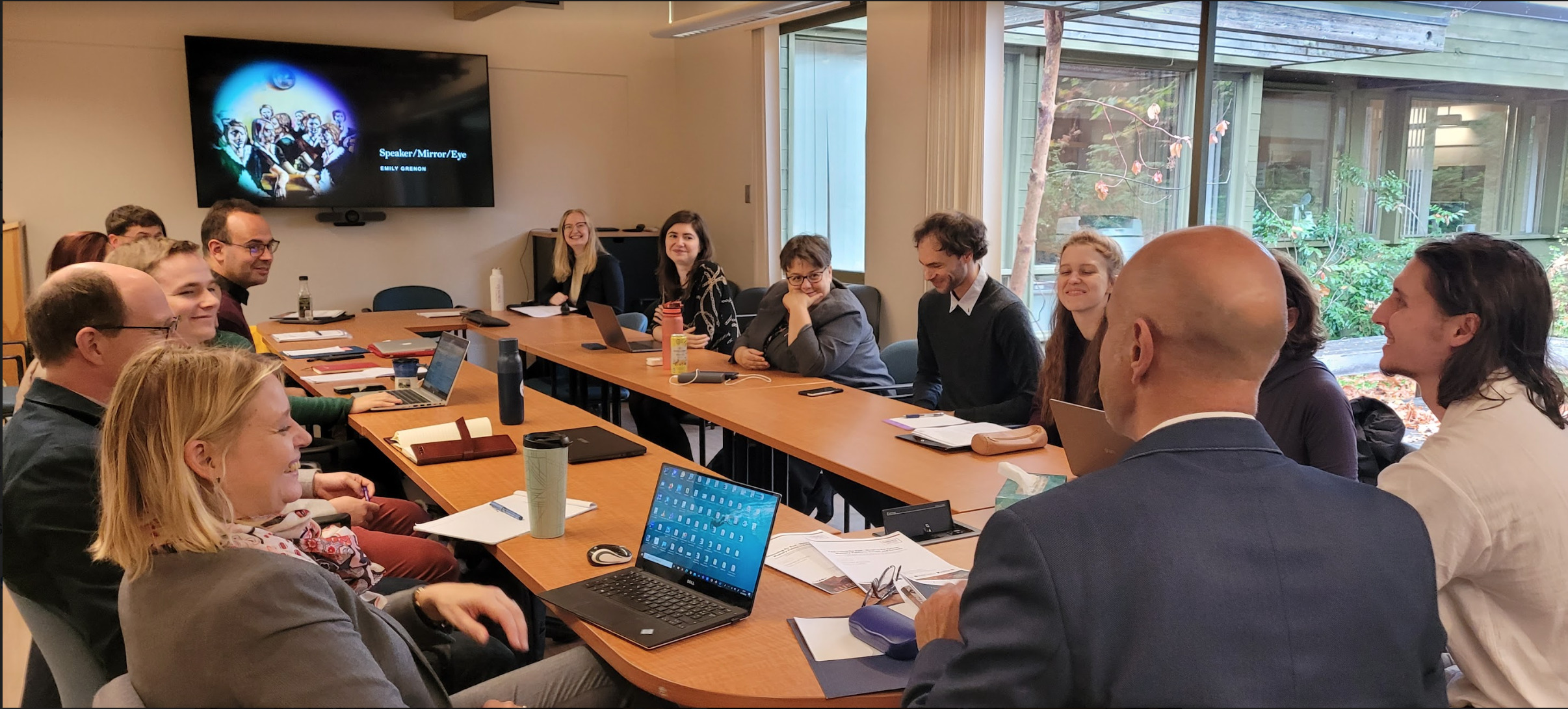 projects and doctoral theses’ research. With the form at of the panel (short presentations and plenty of room for debate), the panel allowed for substantive debate and exchange organized around a common theme (namely the link between memory politics and the state of liberal democracy). Scholars at different levels of their professional careers attended this graduate student panel and contributed to a most fruitful exchange in the wider field of memory politics.
projects and doctoral theses’ research. With the form at of the panel (short presentations and plenty of room for debate), the panel allowed for substantive debate and exchange organized around a common theme (namely the link between memory politics and the state of liberal democracy). Scholars at different levels of their professional careers attended this graduate student panel and contributed to a most fruitful exchange in the wider field of memory politics.
The participants of the panel were the winners of the travel awards: Megan Mattes, Simon Fraser University, Anna Kozlova, Carleton University, Tadeusz Wojtych, Cambridge University & Western University, as well as the Jean Monnet Network researchers: Marton Rakovics and Zsofia Rakovics, Eötvös Loránd University and Francesca Tortorella, Université Catholique de Lille. In addition, University of Victoria students Fazila Mat , Janine Wulz, Eric Zadravec joined the panel. Senior researchers engaged with the young scholars in a three-hour session and provided nuanced comments and feedback on the essays and the contributions. The senior scholars were: Ildikó Barna, Eötvös Loránd University, Beata Halicka, Poznan University, Piotr Oleksy, Poznan University, Matt James, University of Victoria, Oliver Schmidtke, University of Victoria and Birte Wassenberg, University of Strasbourg.
The Public Panel entitled “Confronting Canada’s Legacy of Colonialism and the Residential School System: The Troubled Path towards Reconciliation” took place at UVic’s First Peoples House and was followed by a reception that was sponsored by the Konrad Adenauer Foundation Canada.
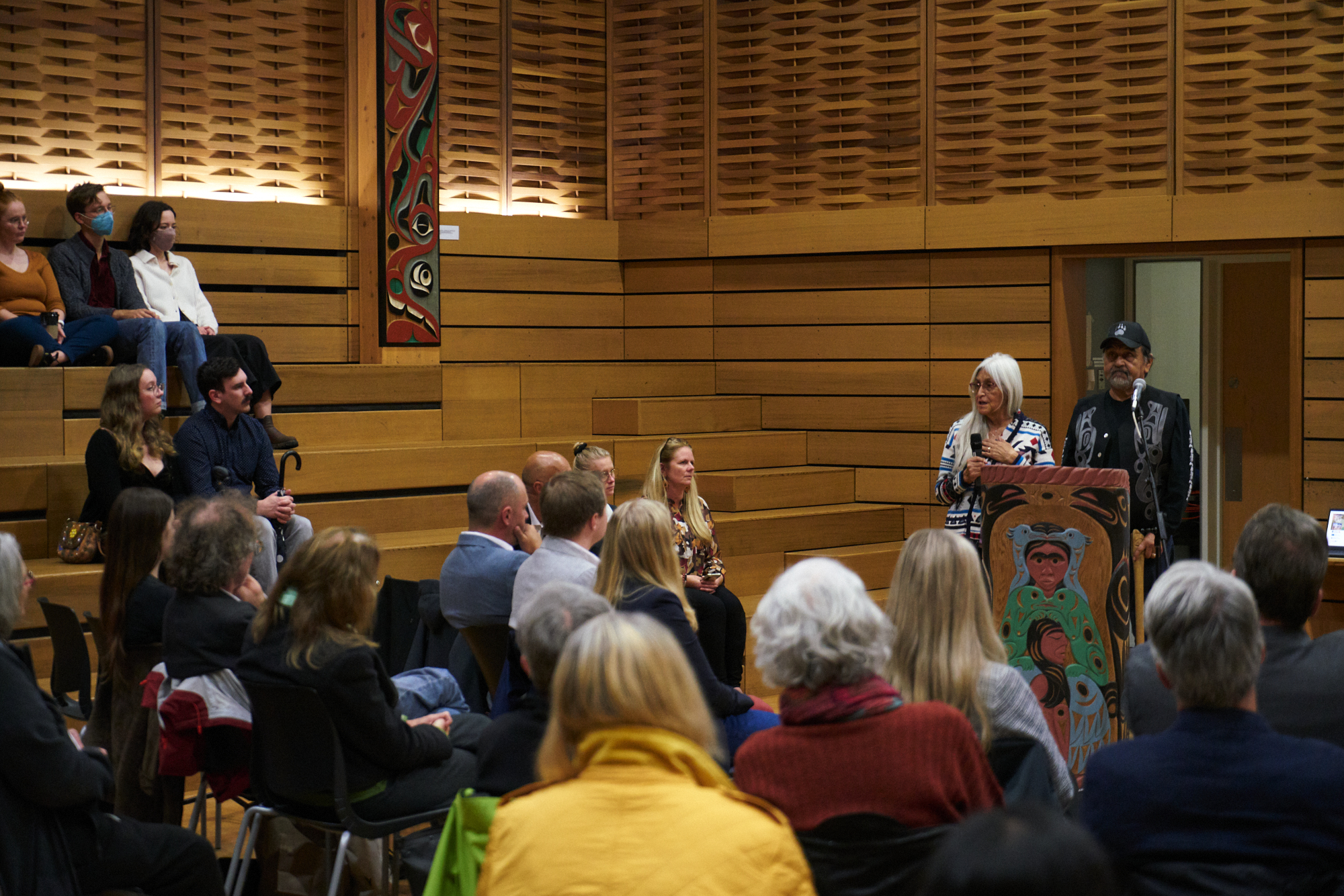
Elders Kathleen Horne and Doug La Fortune, from the Tsawout First Nation, opened the event with the over 100 participants from Victoria and many international scholars from Europe. They shared their survival story at the residential school on Vancouver Island and spoke to the importance of sharing the truth on what happened to the children from First Peoples families across Canada.
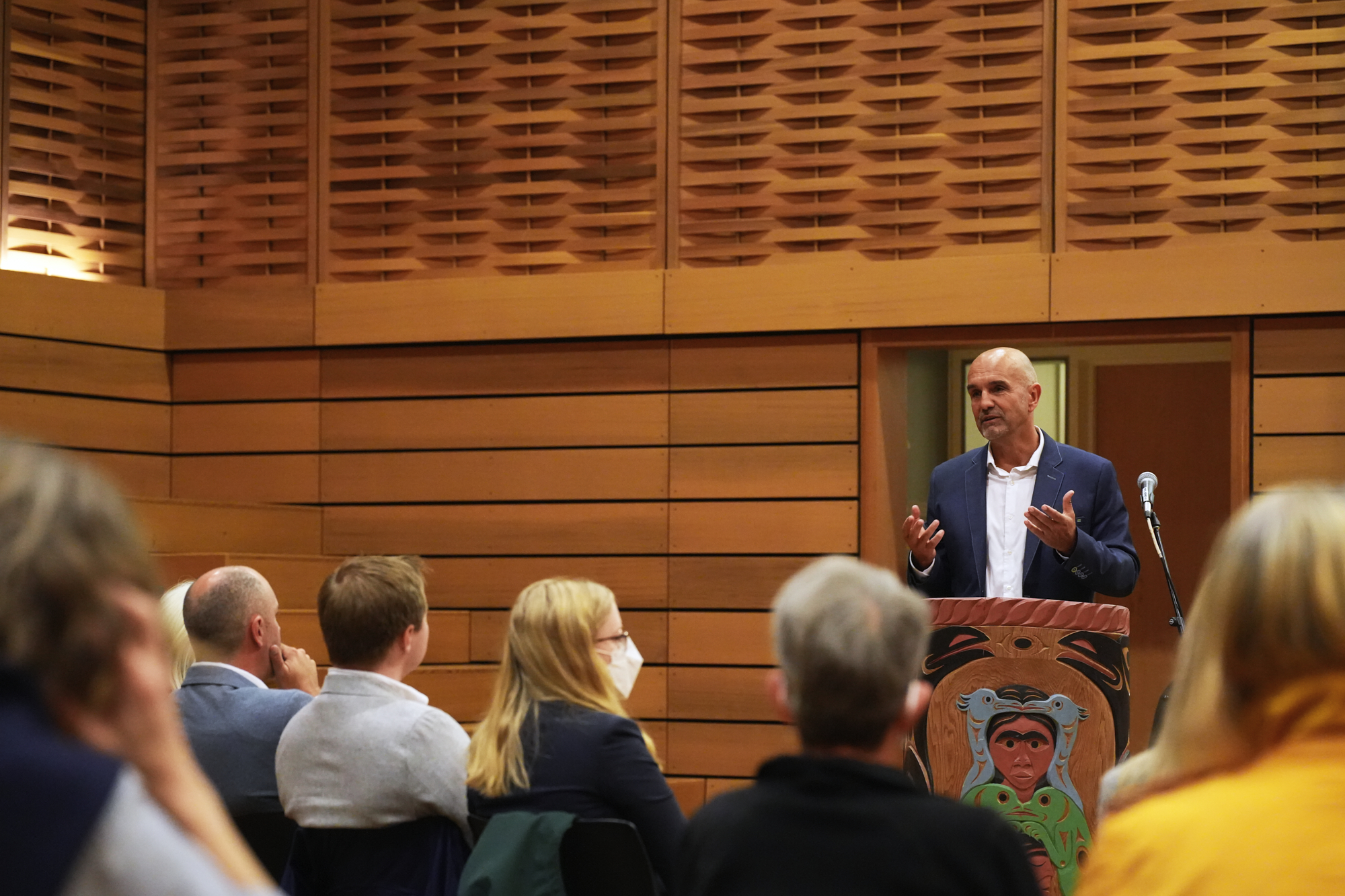
The welcoming remarks by Prof. Oliver Schmidtke, the director of the Centre for Global Studies, began with the land acknowledgement. In his introduction of the projects on the memory politics, Oliver Schmidtke underlined the importance of how Canadian society has commemorated its treatment of Indigenous Peoples and addressed its colonial legacy, – socially and politically. With the discovery of unmarked graves at former Residential Schools, the need to respond properly to this legacy has gained renewed urgency and led to a vigorous debate about what could be effective and legitimate paths towards reconciliation.
The panel included three speakers: Prof. David MacDonald from Guelph University focused on the challenges and opportunities for racialized newcomers and multigenerational settlers who are sometimes caught in a middle position between white settlers and Indigenous peoples. In this respect, Prof. MacDonald addressed how New Zealand navigates the tensions between multiculturalism and the respect for the rights of Indigenous Peoples.
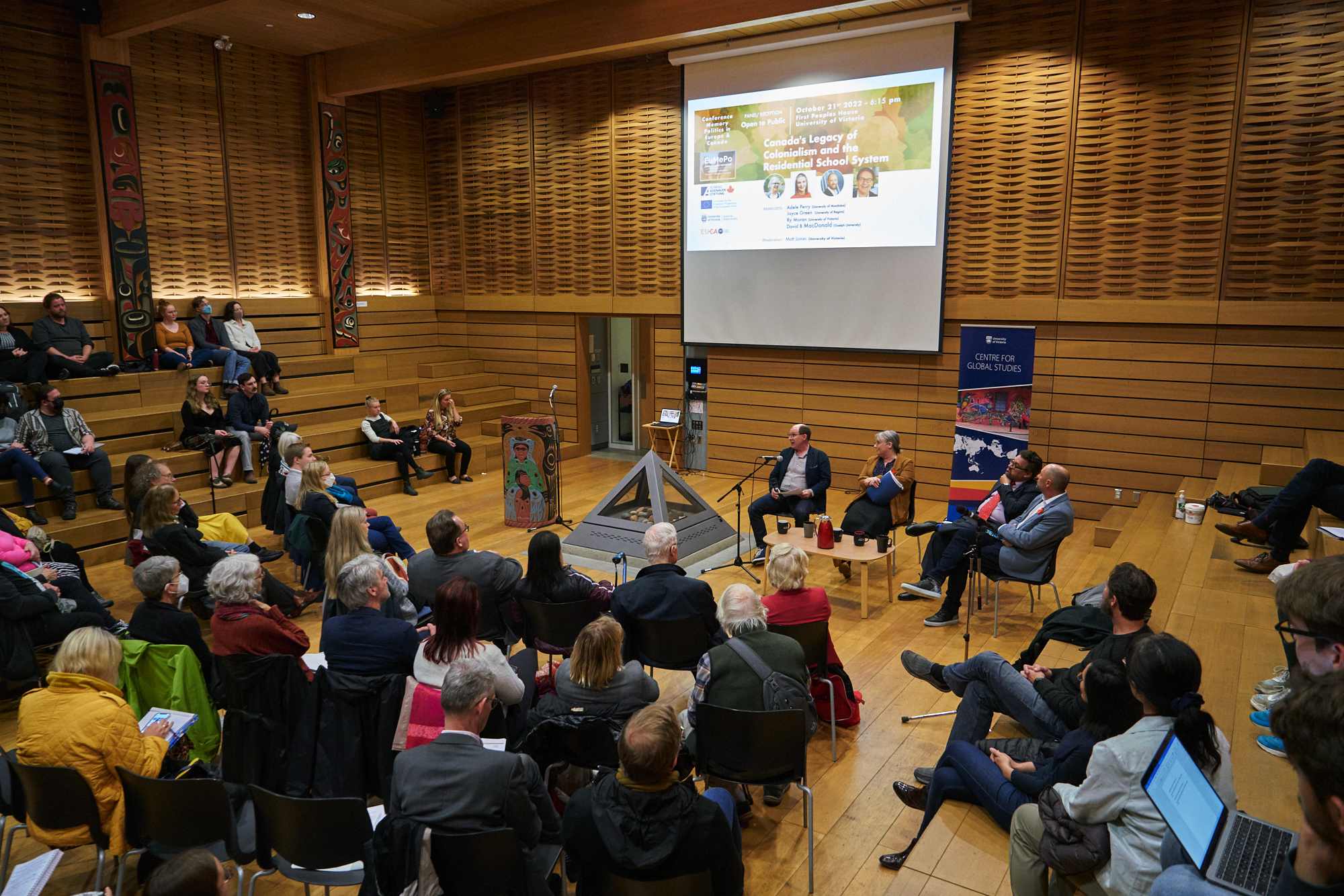
Dr. Ry Moran from the University of Victoria who reflected on the Calls to Action of Canada’s Truth and Reconciliation Commission of Canada (TRC) and intersections between these calls, the UN Declaration on the Rights of Indigenous Peoples and the broad pursuit of human rights within Canada. Having worked closely with the TRC, Dr.Moran elaborated what genuine reconciliation could look like in a Canadian context. Prof. Adele Perry from the University of Manitoba developed her argument that the memories associated with the Indian Residential Schools cannot easily be accommodated within many scholarly and popular interpretations of Canada’s past. According to Prof. Perry these histories cannot be interpreted as aberrations, exceptions or “dark chapters,” but as integral to the project of Canada as a settler nation state.
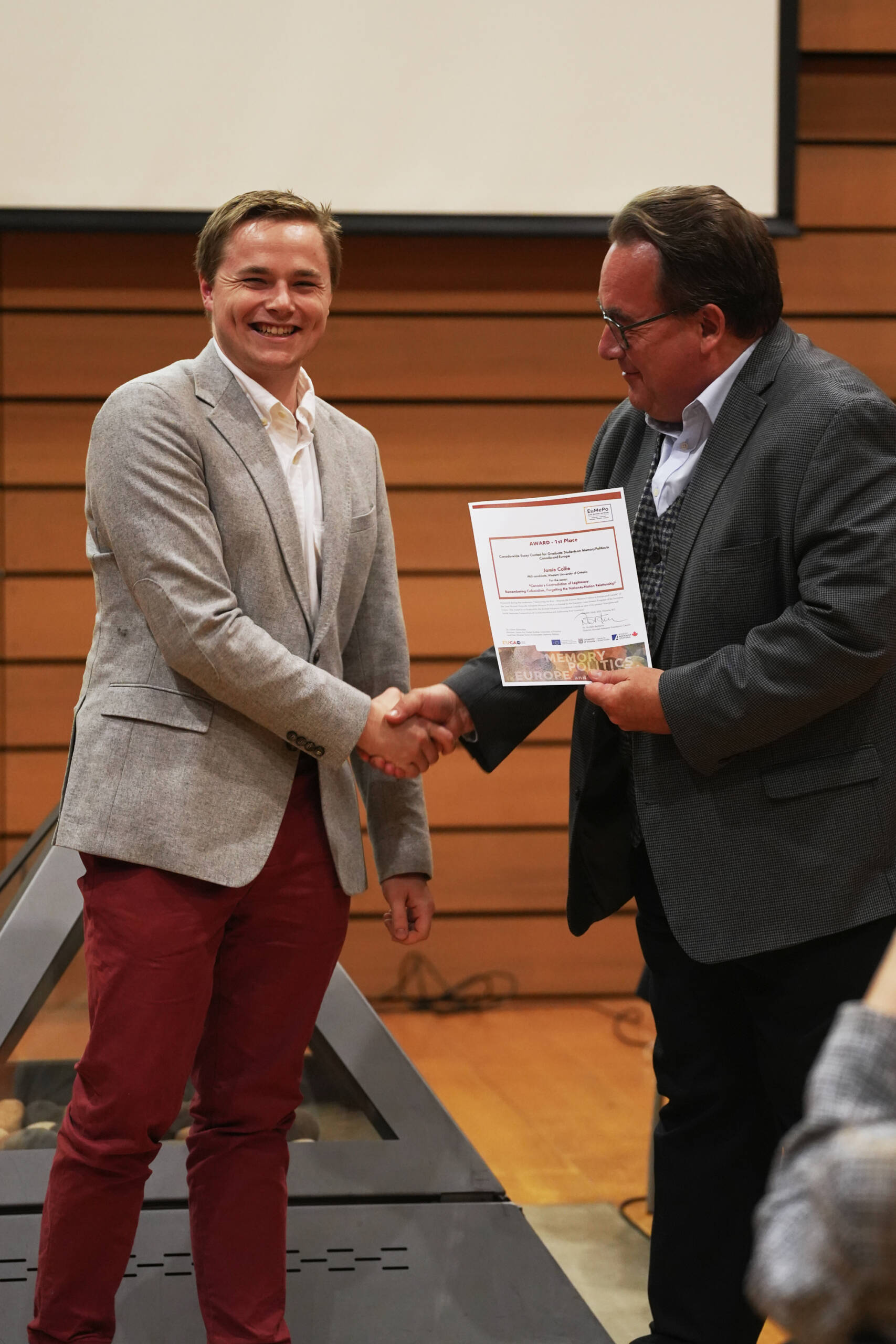
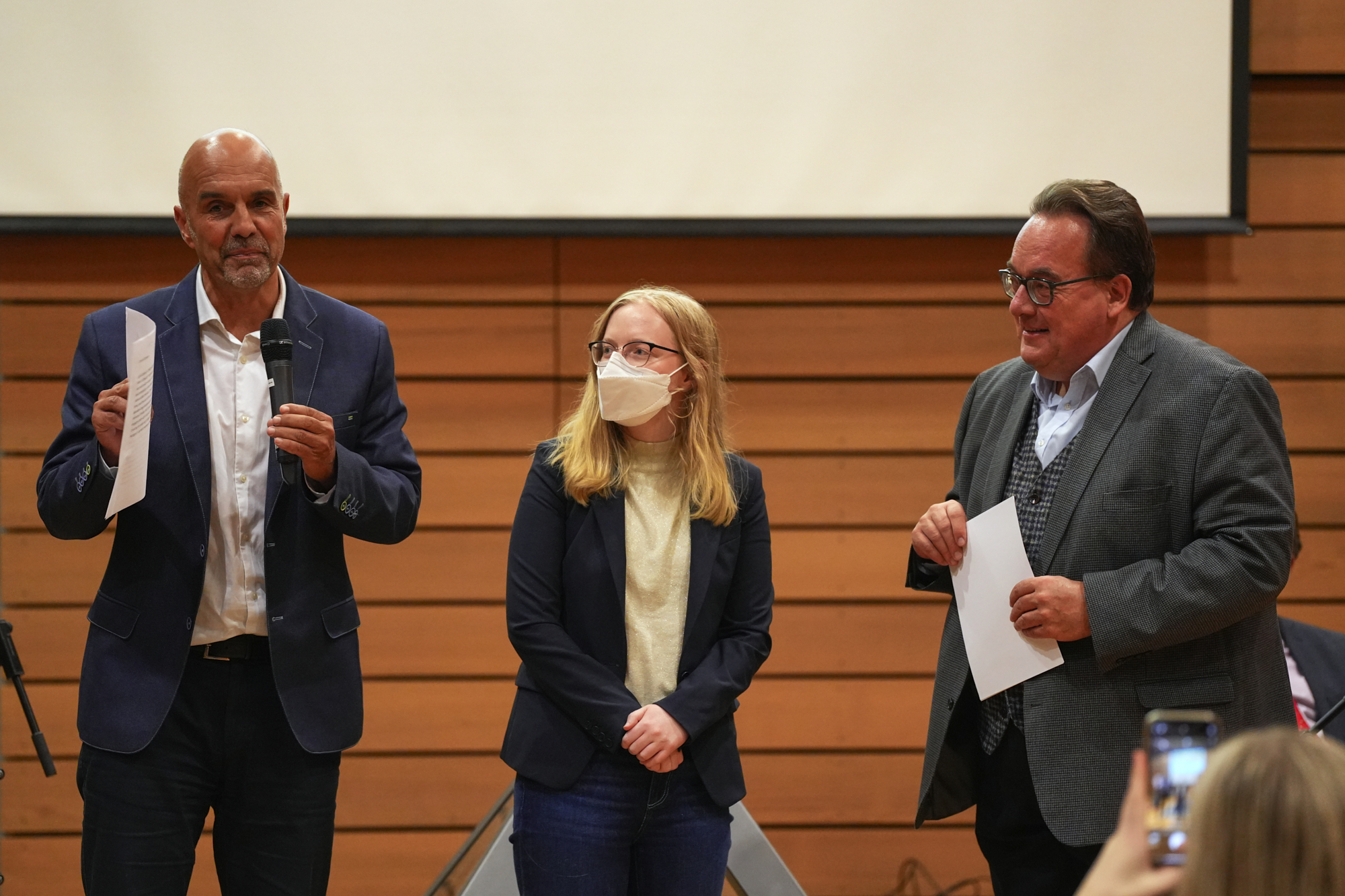
At the end of the event, Oliver Schmidtke thanked the Konrad Adenauer Canada for the financial support of the project “European and North American Perspectives on Commemorating and Addressing Past Injustices“ which allows to include the Canadian and German focus into the Jean Monnet Network European Memory Politics. He then invited the director of the Konrad Adenauer Foundation Canada, Dr. Norbert Eschborn, to congratulate the winners of the essay contest Emily Grenon (MA candidate at the University of Toronto) and James Collie (PhD candidate at the University of Western University) and to present them with the award certificate and the price.
The concluding evening reception – sponsored by the Konrad Adenauer Foundation Canada – provided a fruitful setting for a final round of informal exchanges and encounters.
Day two of the conference began with the panel: The Practices and Legacy of ‘Mastering the Past’ in Germany: Accomplishments and Challenges.
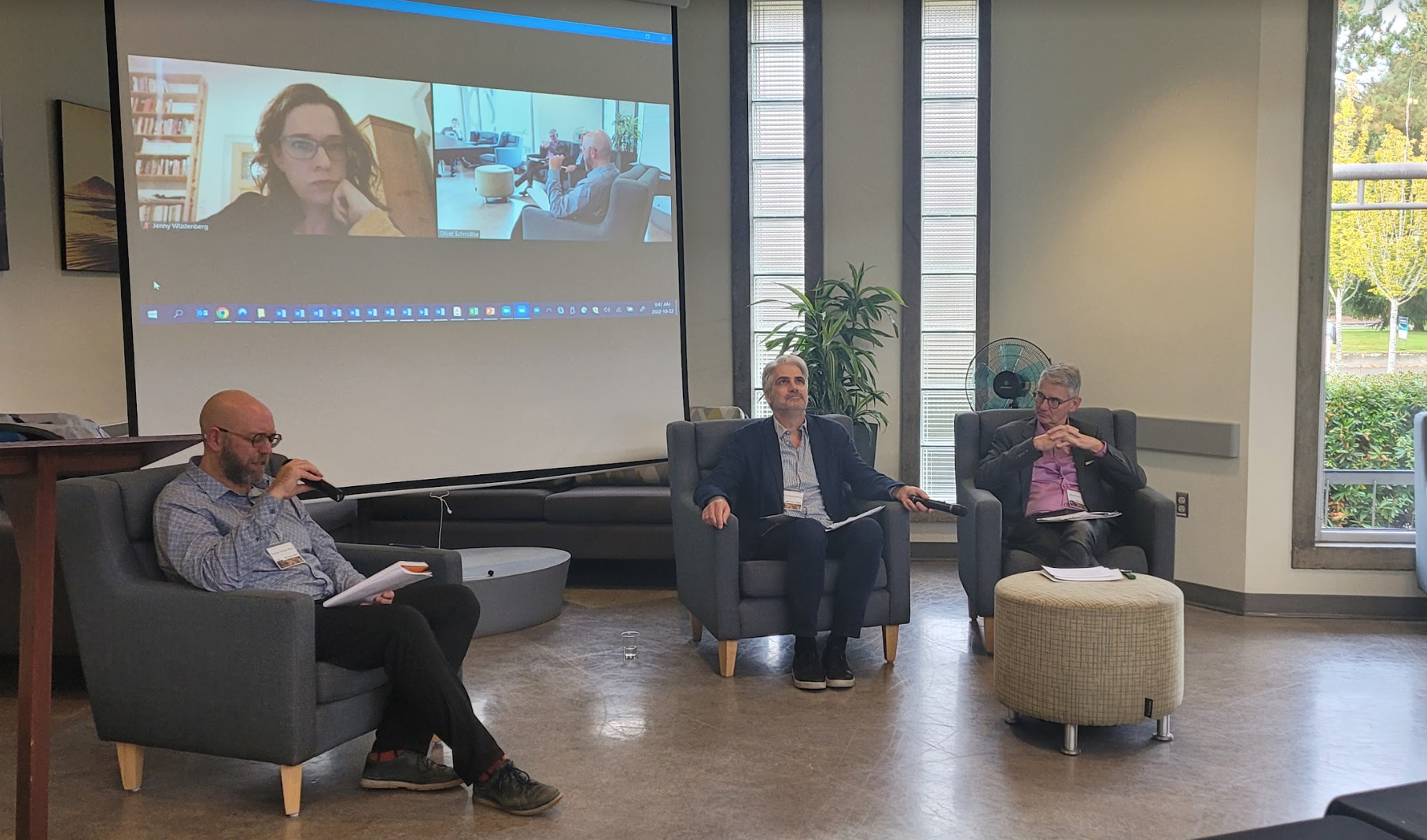
This panel reflected on how German political authorities and society have addressed the Holocaust and the legacy of the Third Reich with a particular emphasis on how we can relate this legacy of addressing the past to other contexts. Prof. Markus Hallensleben, University of British Columbia, considered the performative aspects of “reconciliation” when just serving memory politics that thrive for normalization.
Based on the German context, he elaborated the concept of a “Theatre of Memory” (Gedächtnistheater) and relating it to Canada and the ongoing political efforts of reconciliation in Canada (“Theatre of Regret”). Helge Heidemeyer from the Stiftung Gedenkstätte Berlin-Hohenschönhausen discussed the lessons that Germany leaned from the experience commemorating its Nazi past and to which degree this legacy has served as a role model in helping the country address its second dictatorship, the communist regime in East Germany after 1990. He considered whether the German model of addressing the past has served as a role model for legal prosecution, historical research, establishing memorials and shaping the historical narrative in German society. As the third speaker Prof. Jenny Wüstenberg, Nottingham Trent University, presented her research on how civil society organisations have pushed different agendas within the Federal Republic of Germany since 1945. She argues that we need to take into account normative, representative and representational elements in the relationship between the state and grassroots actors. The session provided a productive link between the previous evening’s panel focussing on the legacy of colonialism in Canada and issues of memory politics in the European context.
The second panel on Reinventing the Nation and Political Community: Memory Politics in Central Eastern European Societies
focussed on Central and Eastern European societies have redefined what national identity, sovereignty, and political community means by invoking key historic events after the collapse of Soviet Communism. It drew attention to those countries where a strong emphasis on national identity and the use of collective memory in nationalist-populist mobilization can be detected.
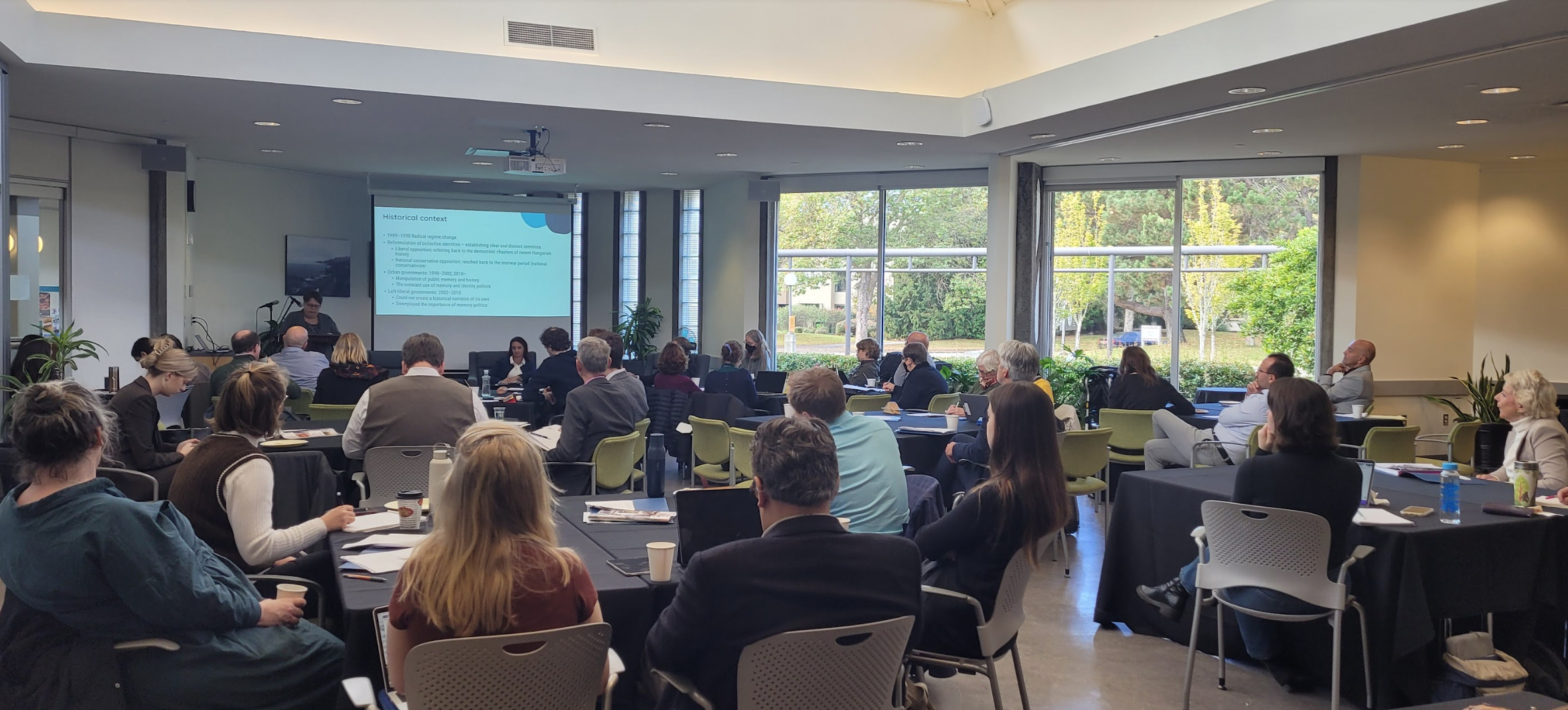 First, Prof. Ildikó Barna from Eötvös Loránd University in Budapest presented on the (mis)use of memory politics in Hungary. She reflected on how Viktor Orbán and his right-wing, national-conservative government put considerable efforts into the manipulation of public memory and history (with a particular focus on the Trianon Treaty and the Holocaust). She demonstrated how Fides was successful in generating an emotional form of antagonistic remembering compared to which liberals or the left lost the opportunity to shape memory and identity politics. Prof. Dovile Budryte from Georgia Gwinnett College in the United States continued with a presentation on the construction of the Holocaust memories in Lithuania. Her central argument was that in post-Communist Lithuania, the Holocaust has become a site of intense contestations and mnemonic cooperation (addressing multiple forms of trauma) at the same time. In her reading, mnemonic conflicts can be linked to the tensions between the Western narrative about the uniqueness of the Holocaust and the “Soviet genocide” discourse embedded in the “fighting and suffering” narrative. Then Prof. Beata Halicka from Poznan University looked at the role that collective memory plays in contemporary Poland. In her interpretation it is central to consider the public perception of the independence and sovereignty of the Polish state as a kind of national sanctity. The national memory of both, German and Soviet occupation, have become an integral element in the current government’s domestic and foreign policy agenda centered on national sovereignty and pride. As a final speaker, Prof. Peter Verovsek (Groningen University) demonstrated that in post-Communist Europe new divisions emerged, most notably regarding their differing understandings of democracy. He argued that the divergent understandings of liberal and “illiberal” democracy are rooted in collective remembrance that have shown a different logic in Western and Eastern Europe. Whereas memory cultures organized around the defeat of National Socialism in 1945 emphasize the need to protect fundamental human rights, those organized around 1989, i.e. the experience of occupation and the loss of political control under communism, emphasize domestic popular sovereignty.
First, Prof. Ildikó Barna from Eötvös Loránd University in Budapest presented on the (mis)use of memory politics in Hungary. She reflected on how Viktor Orbán and his right-wing, national-conservative government put considerable efforts into the manipulation of public memory and history (with a particular focus on the Trianon Treaty and the Holocaust). She demonstrated how Fides was successful in generating an emotional form of antagonistic remembering compared to which liberals or the left lost the opportunity to shape memory and identity politics. Prof. Dovile Budryte from Georgia Gwinnett College in the United States continued with a presentation on the construction of the Holocaust memories in Lithuania. Her central argument was that in post-Communist Lithuania, the Holocaust has become a site of intense contestations and mnemonic cooperation (addressing multiple forms of trauma) at the same time. In her reading, mnemonic conflicts can be linked to the tensions between the Western narrative about the uniqueness of the Holocaust and the “Soviet genocide” discourse embedded in the “fighting and suffering” narrative. Then Prof. Beata Halicka from Poznan University looked at the role that collective memory plays in contemporary Poland. In her interpretation it is central to consider the public perception of the independence and sovereignty of the Polish state as a kind of national sanctity. The national memory of both, German and Soviet occupation, have become an integral element in the current government’s domestic and foreign policy agenda centered on national sovereignty and pride. As a final speaker, Prof. Peter Verovsek (Groningen University) demonstrated that in post-Communist Europe new divisions emerged, most notably regarding their differing understandings of democracy. He argued that the divergent understandings of liberal and “illiberal” democracy are rooted in collective remembrance that have shown a different logic in Western and Eastern Europe. Whereas memory cultures organized around the defeat of National Socialism in 1945 emphasize the need to protect fundamental human rights, those organized around 1989, i.e. the experience of occupation and the loss of political control under communism, emphasize domestic popular sovereignty.
The third panel on An emerging European Memory Culture? Europe between transnational memory and addressing its colonial legacy
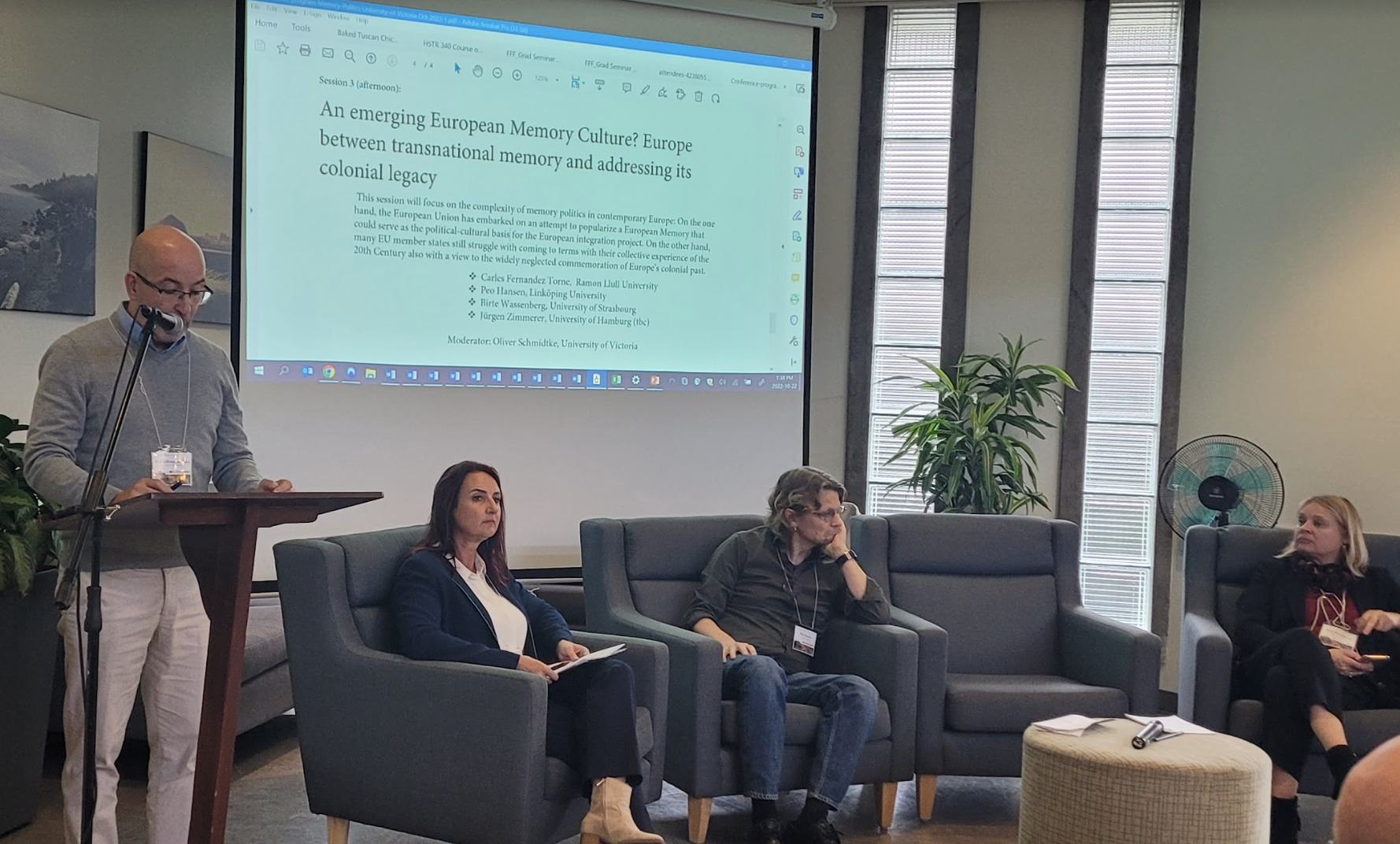
focused on the complexity of memory politics in contemporary Europe: On the one hand, the European Union has embarked on an attempt to popularize a European Memory that could serve as the political-cultural basis for the European integration project. On the other hand, many EU member states still struggle with coming to terms with their collective experience of the 20th Century also with a view to the widely neglected commemoration of Europe’s colonial past. The first speaker was Prof. Carles Fernandez Torne from Ramon Llull University who presented on issues of transitional justice and the legacies of colonialism. He considered how democracies in the global north have started to address the legacies of colonial historical injustices, by using the transitional justice framework they have been promoting over the last decades in the global south. For Torne, long-established democracies seek democratic consolidation by addressing past injustices associated with their own colonial history.
Then, Prof. Peo Hansen (Linköping University, Sweden) spoke to what he interprets as the “European Union’s Colonial Amnesia”. He argues that the birth of post-war European integration was historically associated with and shaped by colonialism. Based on this finding, Prof. Hansen suggested a link between this historic amnesia and the problematic attempts to democratize the European Union. The final speaker on the panel was Prof. Birte Wassenberg, from the University of Strasbourg who, in marked contrast to Hansen’s presentation, depicted European memory as a memory of peace that has demonstrated its power for reconciling and re-unifying the European nations. Prof. Wassenberg used the example of European border regions as illustrations of perceptions of a European identity, reconciliation and (tans)regional cooperation.
Day three allowed for a plenary discussion on ThePolitics of Memory and the War in Ukraine;
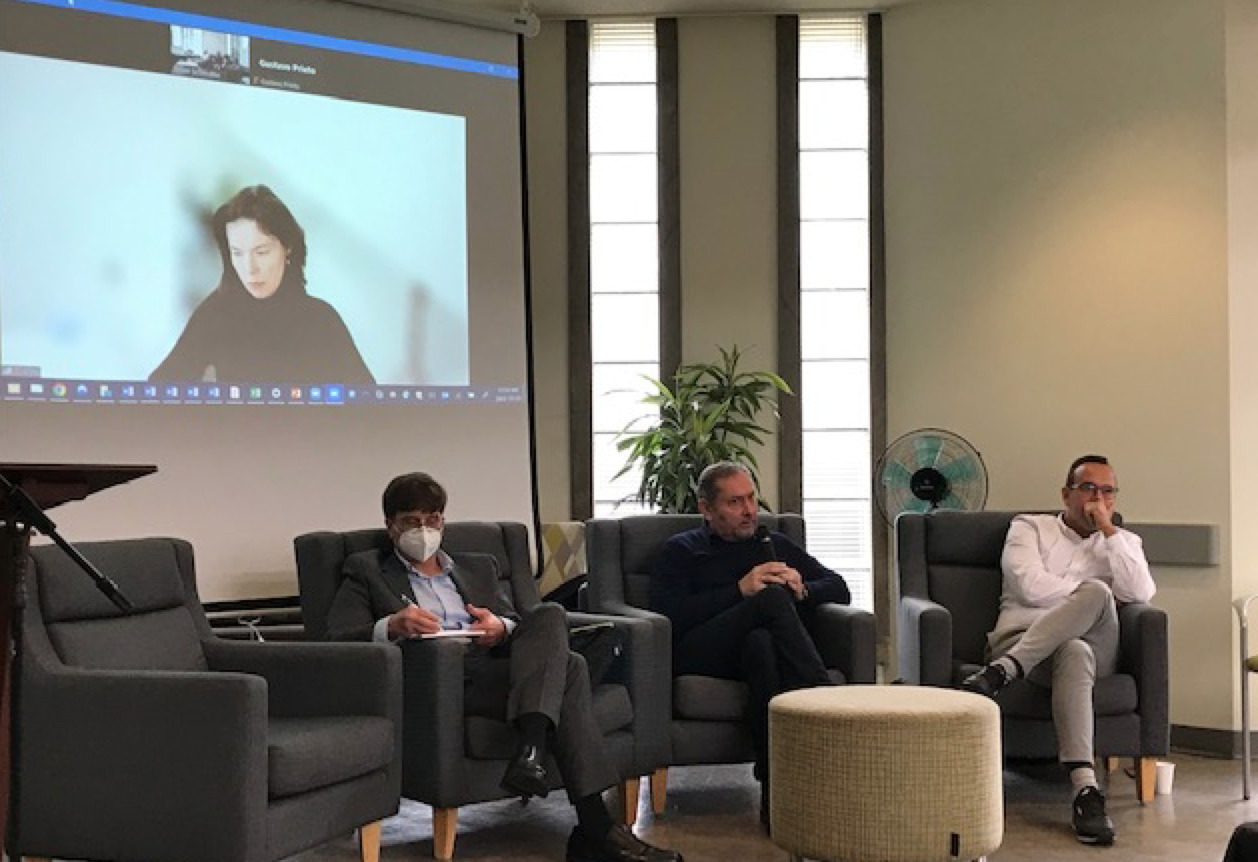
This plenary was open to public and addressed how and with what political goals history is being mobilized in Russia and Ukraine Russian attack on Ukraine. As a first speaker, Dr. Alina Cherviatsova from Ghent University spoke about the historical Narratives in Russia’s war against Ukraine and the trope of ‘Russian historical lands’ used by the Kremlin. She demonstrated how farback in Soviet history the denial of Ukraine as a legitimate independent country reaches and how this rhetoric has gained in aggressiveness in the wake of the Crimean annexation. Dr. Piotr Oleksy (Poznan University) looked at identity and memory issue in his analysis of Eastern European politics. In his view, the highly emotional and divisive memory politics is meant to divert attention from their greed, ineptitude, institutional weaknesses, as well as corruption, poverty and the criminalization of social life.
In the subsequent presentation, Prof. George Soroka (Harvard University) argued that Russia’s attempts to turn the past into a tool of foreign policy significantly predate the current conflict. For him, the current political rhetoric promulgated by Putin and the Kremlin is not only highly instrumental, but also a natural outgrowth of other mnemonic practices and narratives that have been growing throughout Russian in recent years. He described Russian President Putin’s shift to a political narrative stressing civilizational contestation between Russia and the West as central to the current propaganda war. As a final speaker of this plenary, Prof. Serhy Yekelchyk (University of Victoria) drew the audience’s (ca 80 attendees) attention to the fact that the Soviet legacy separating the historical memory in present-day Ukraine from the one cultivated in Russia date back to the prevailing attitudes to Stalin’s rule in both countries. In this perspective, he provided a longue durée perspective of the divergence between Ukraine and Russia based on the contrasting interpretation and political use of history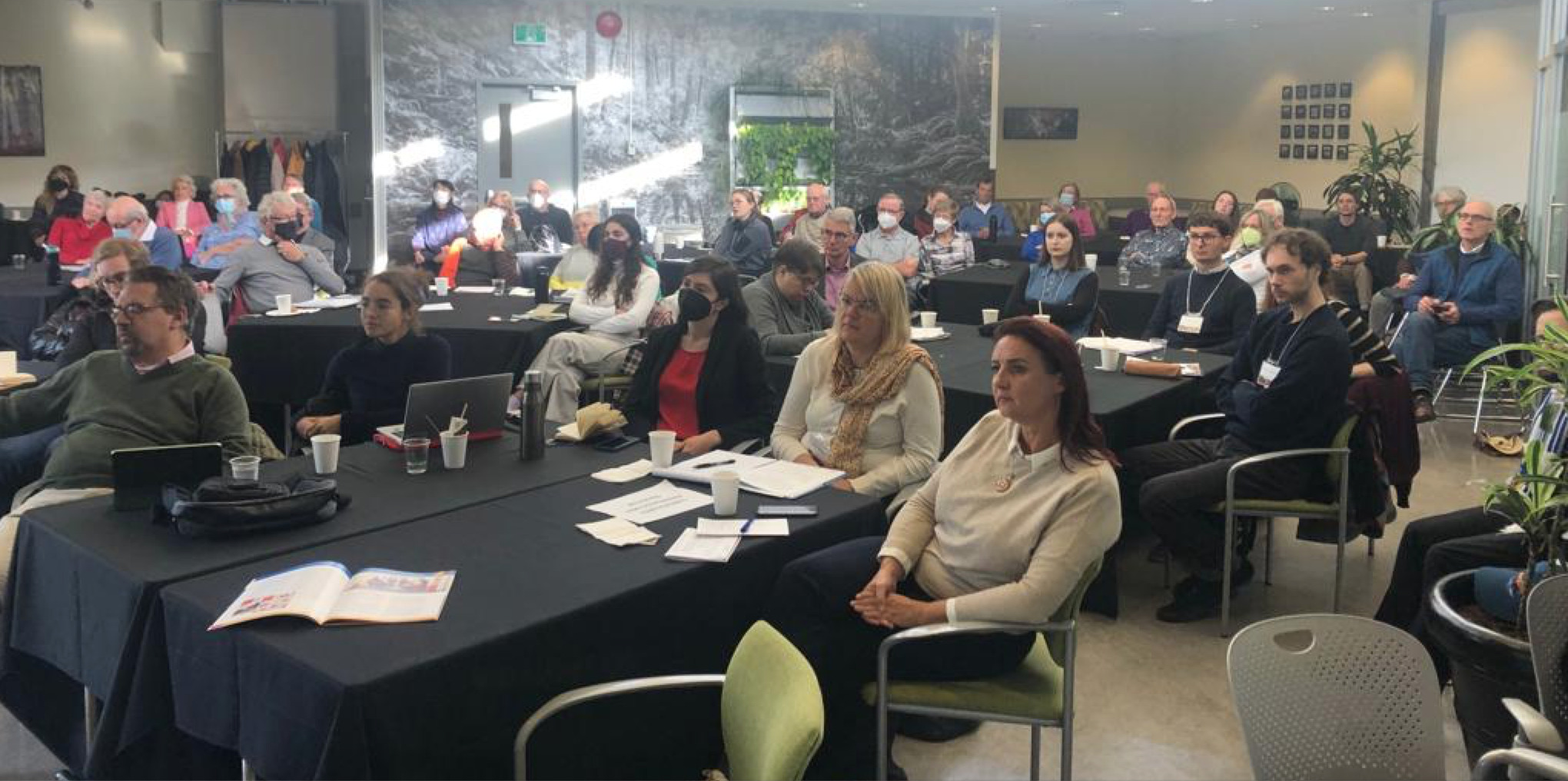 .
.
During the conference selected senior scholars were filmed during an interviews series with Beate Schmidtke (EUCAnet Co-Lead, Manager) and Levi Glass (Videographer) focusing on two questions: “How is memory politics connected with issues of democracy and social inclusion” and “Why is there a renewal interest in the history of the 20th century as a tool for politics”.
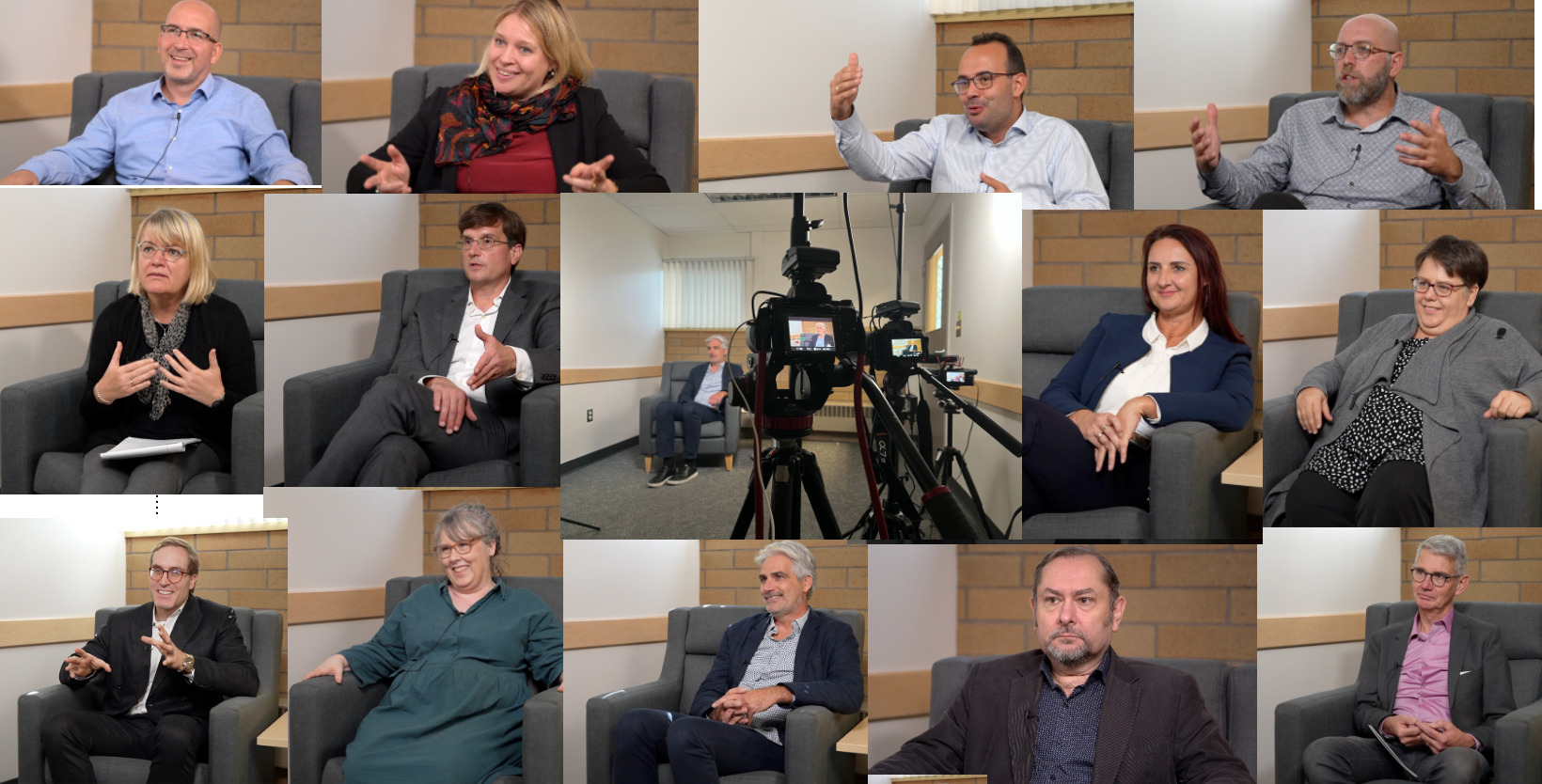
Day three allowed also for a social outing with the conference participants from outside of Victoria.
Thank you for participating and a special thank you to our helpers at the University of Victoria
Impressions
Jodie Walsh (CFGS Operations Director), Amanda Merritt (CFGS Events and Administrative Assistant), Rowan Salverda (CFGS Communications Assistant), Sophie Bruckel (MA Student), Alissa Schmidtke (BA Student), Sebastien Leroy (BA Student), Janine Wulz (Phd Candidate), Fazila Mat (PhD Candidate)
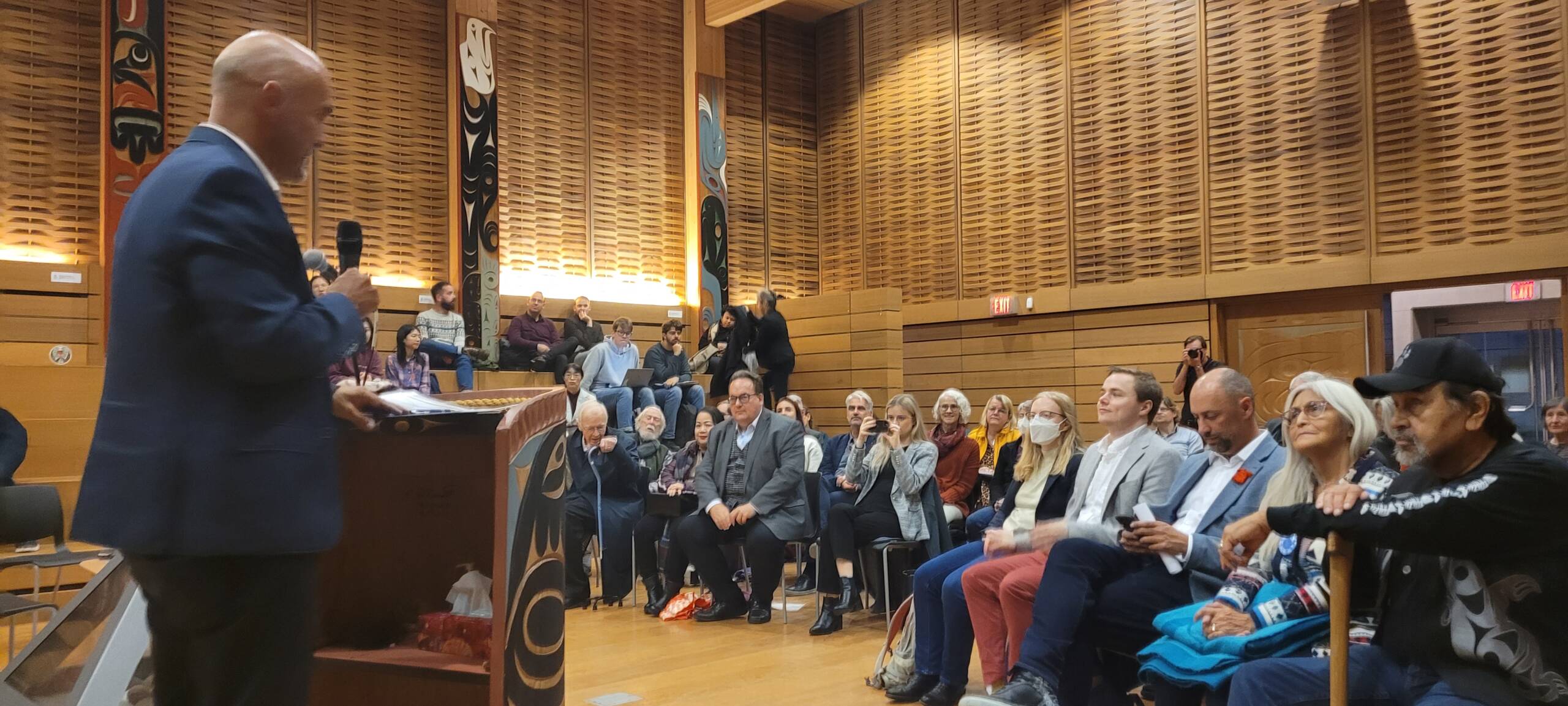
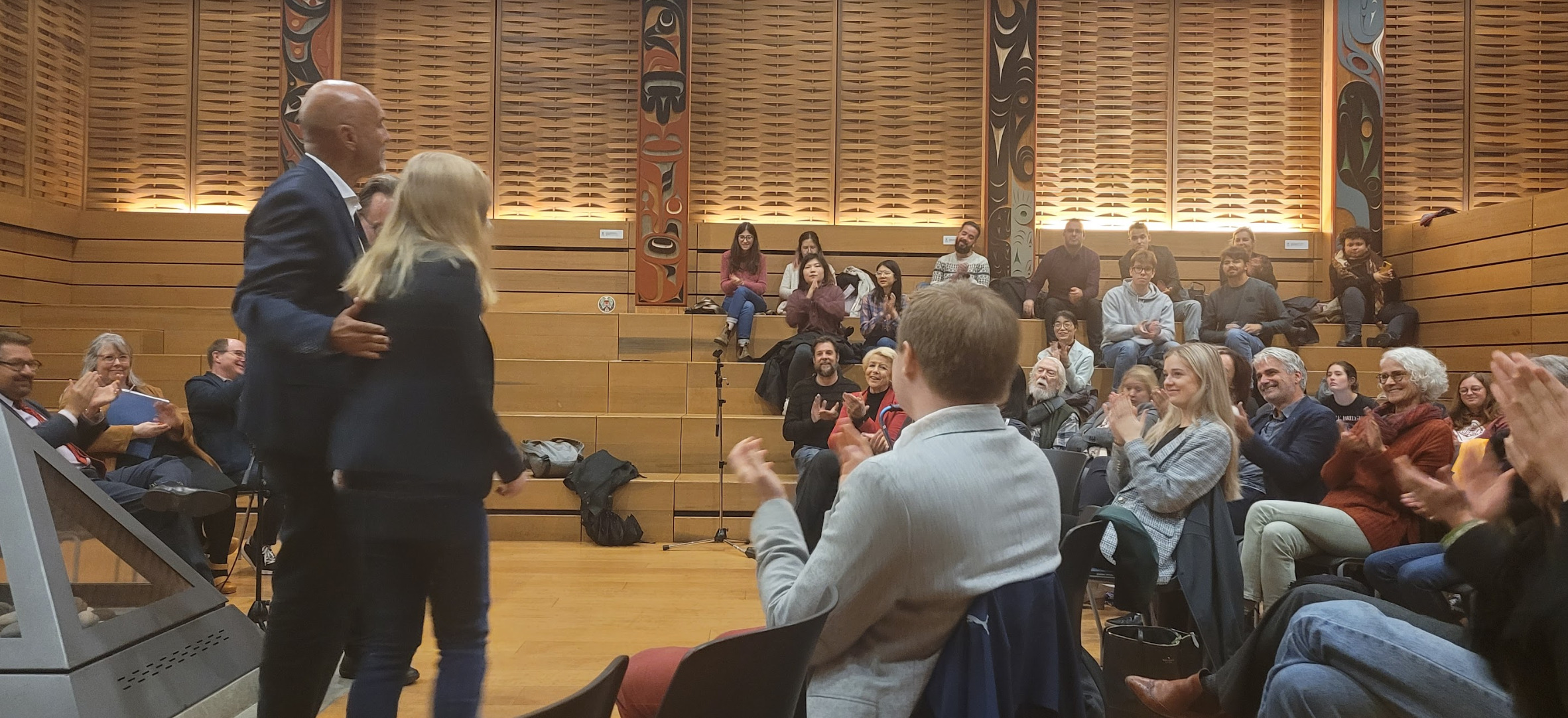
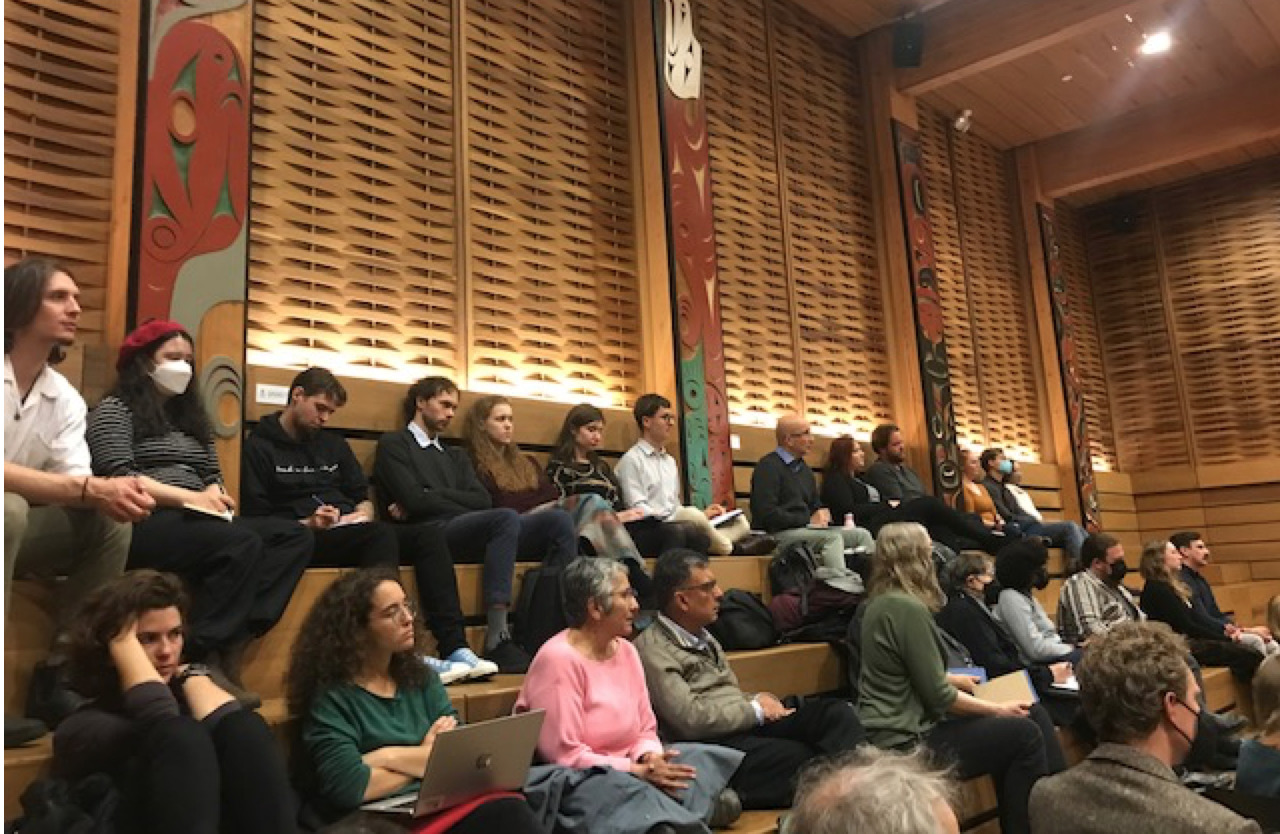
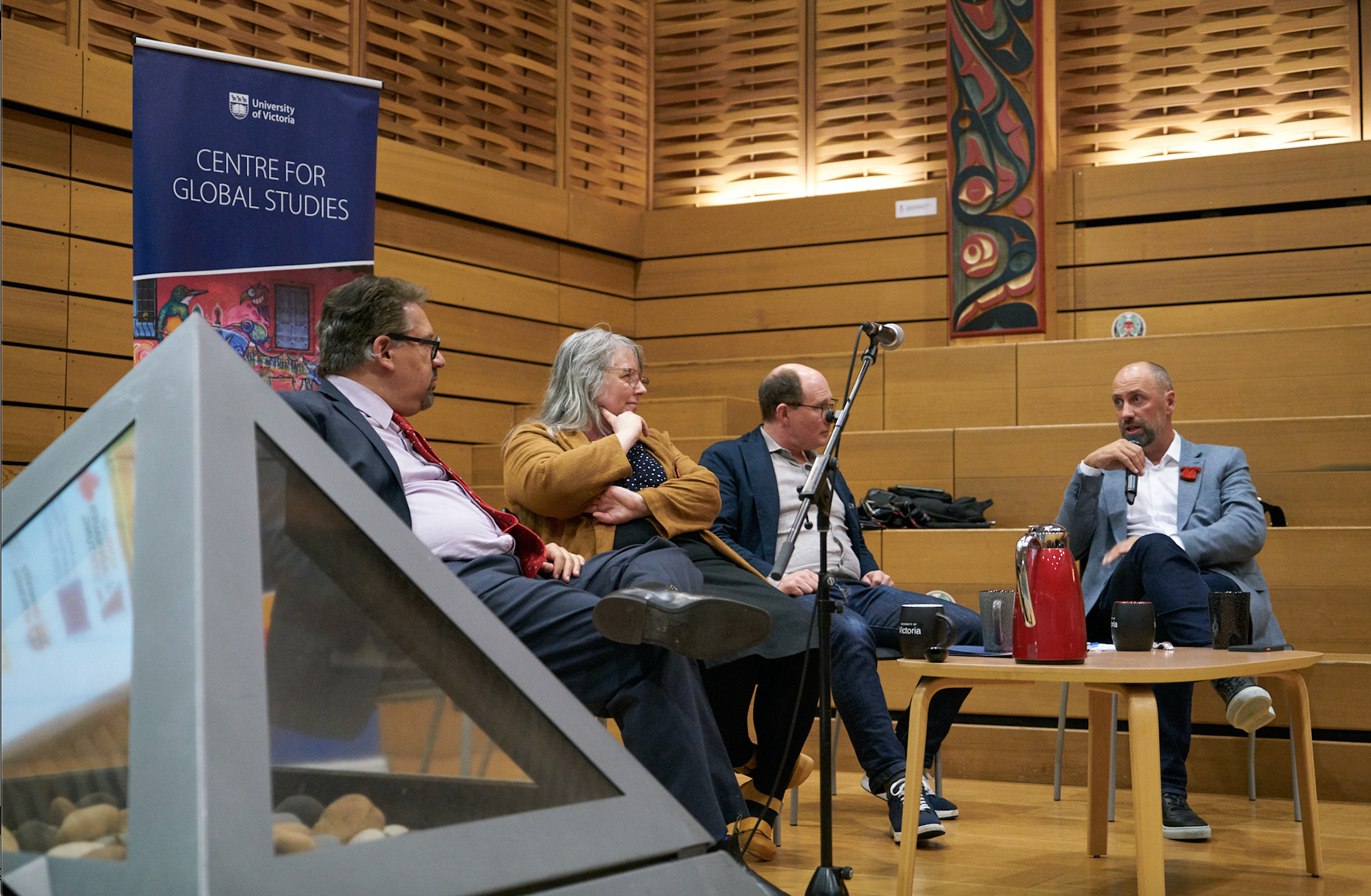
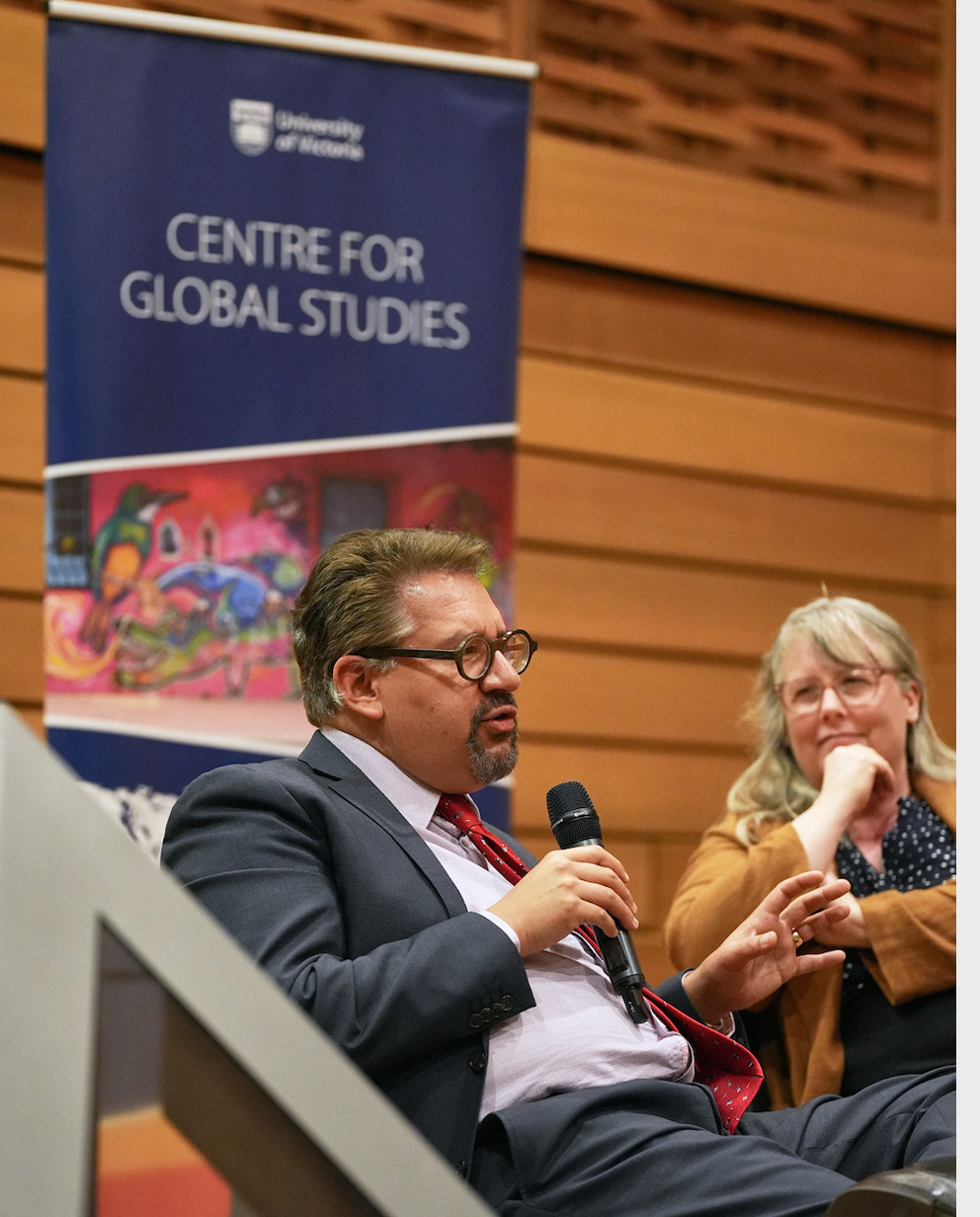
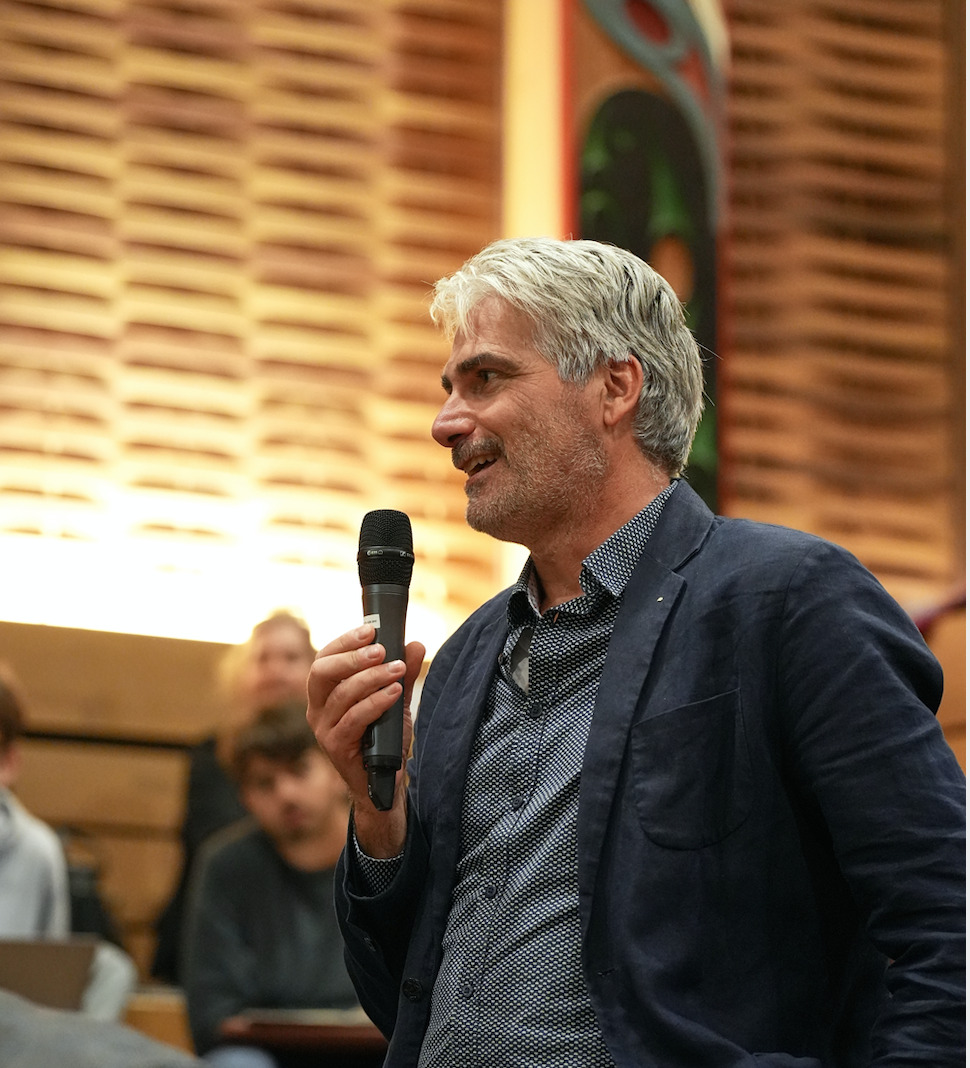
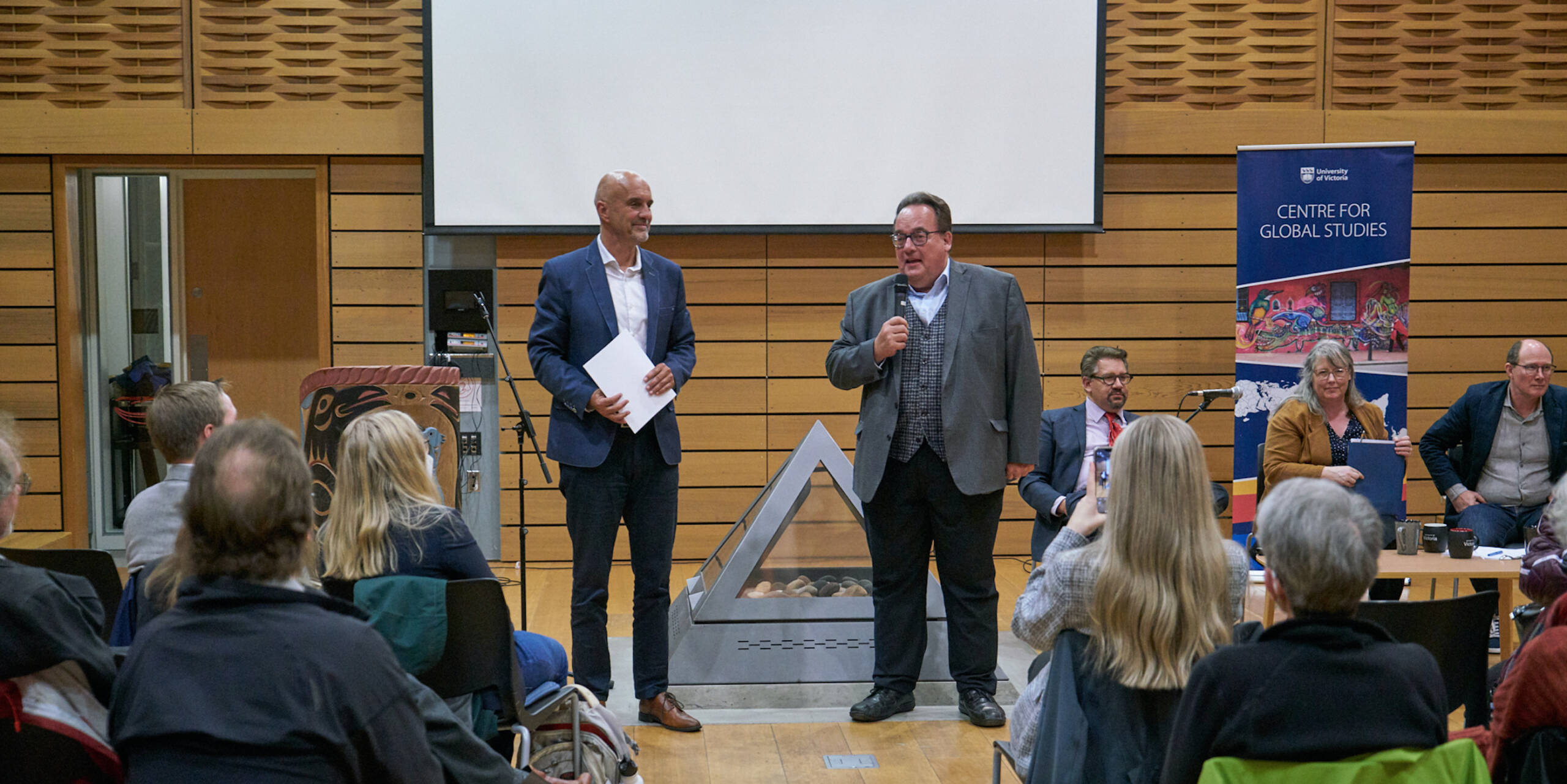
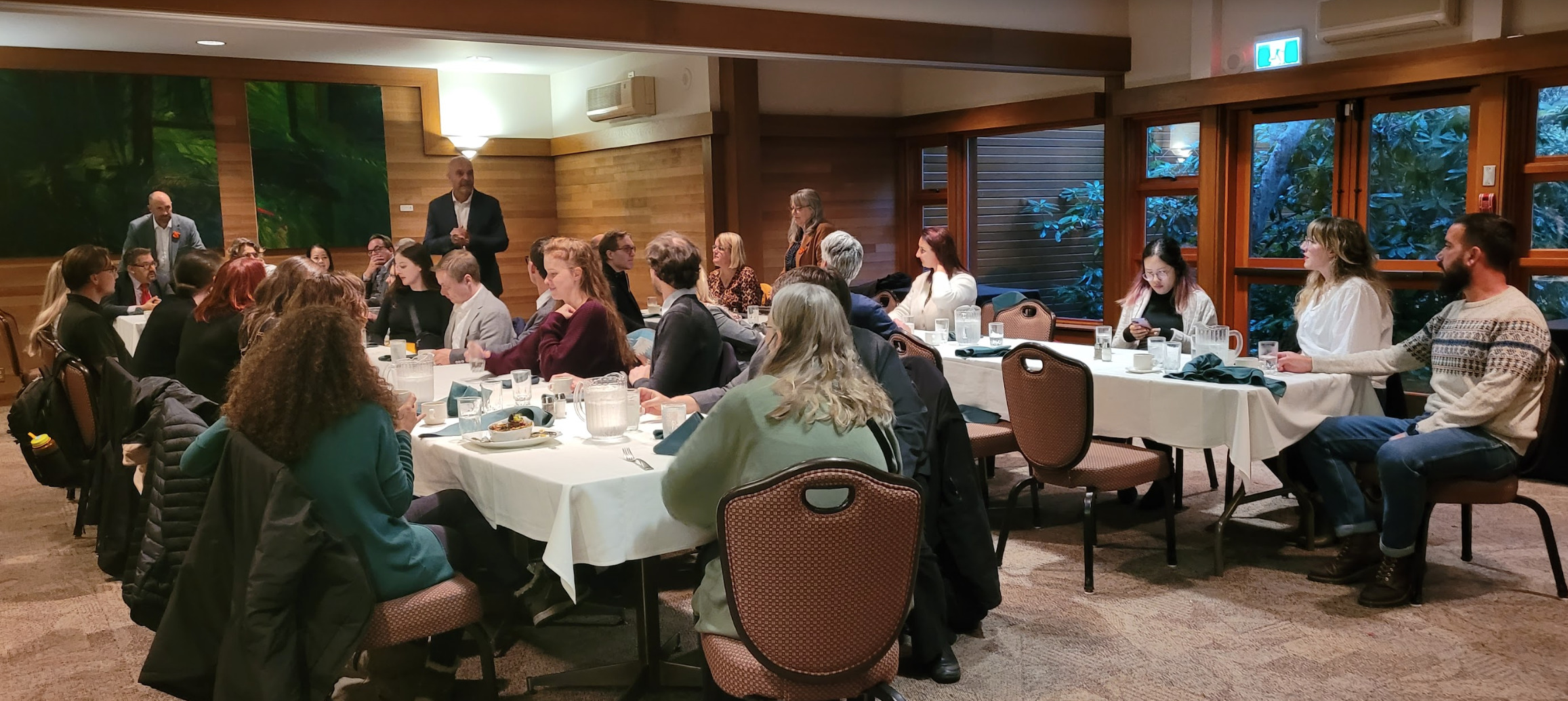
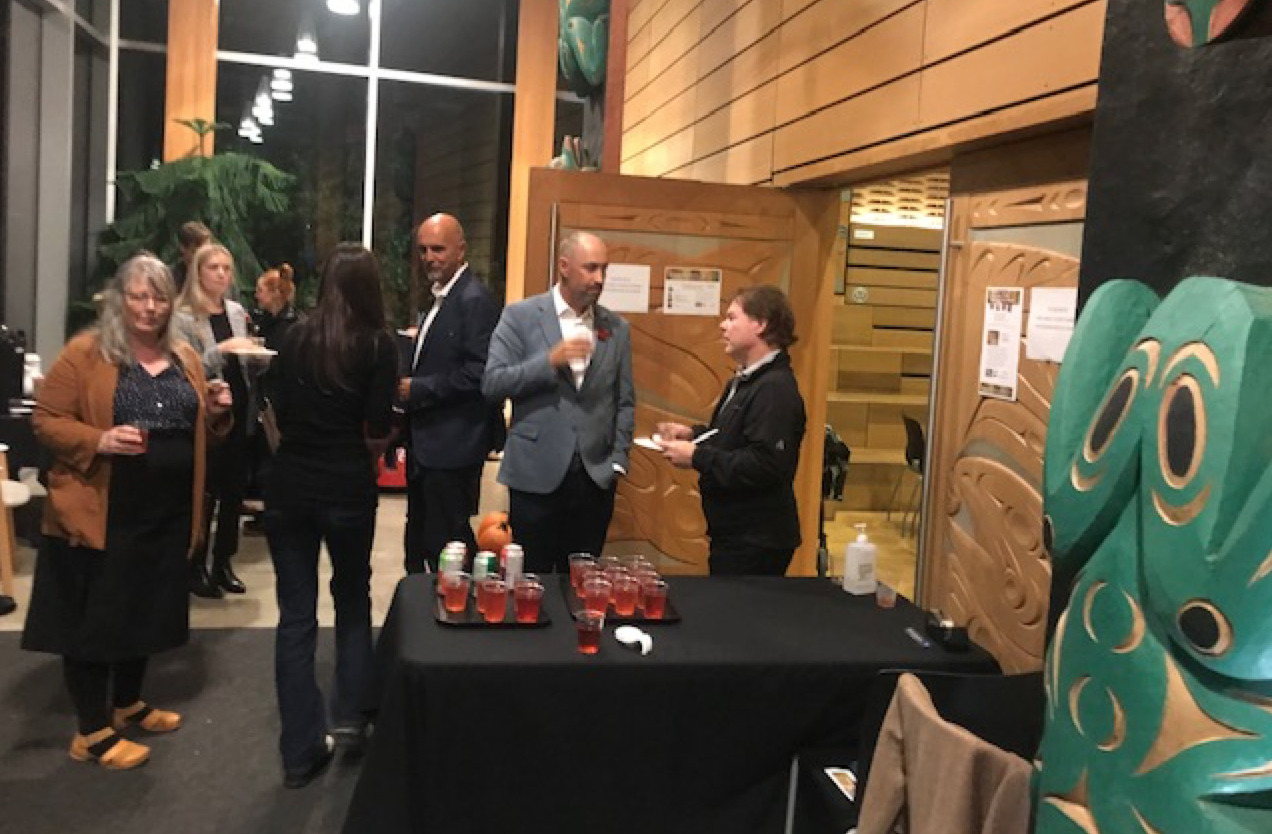
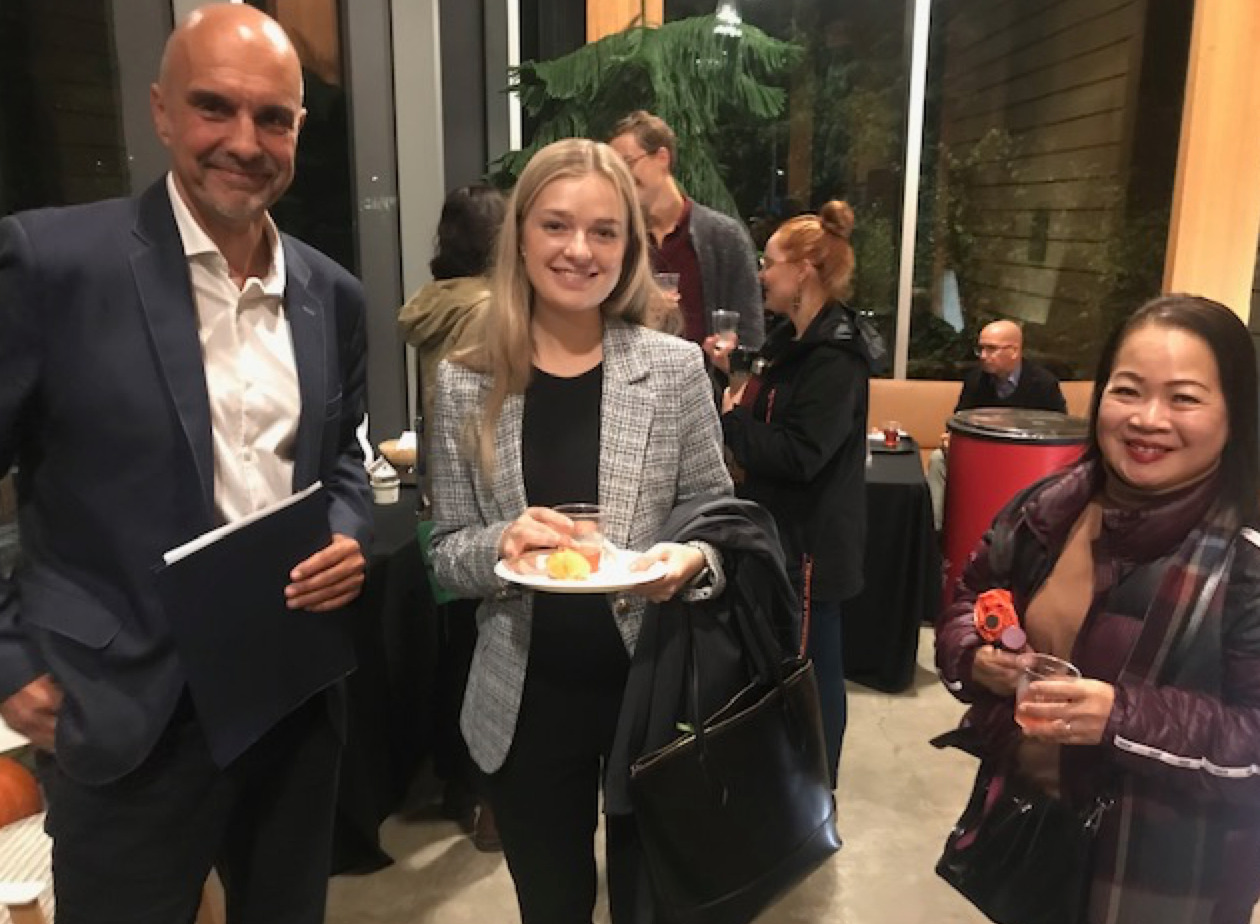
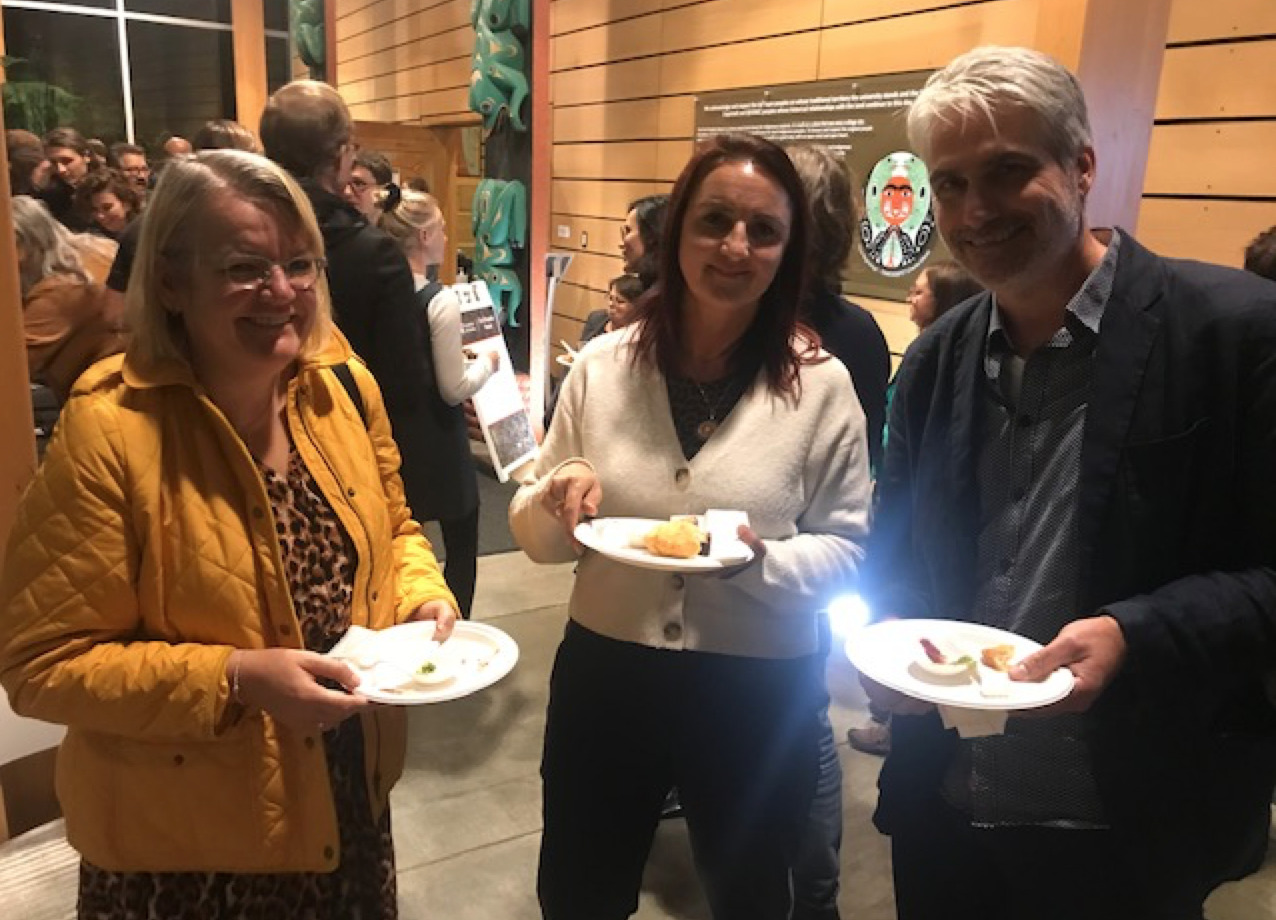
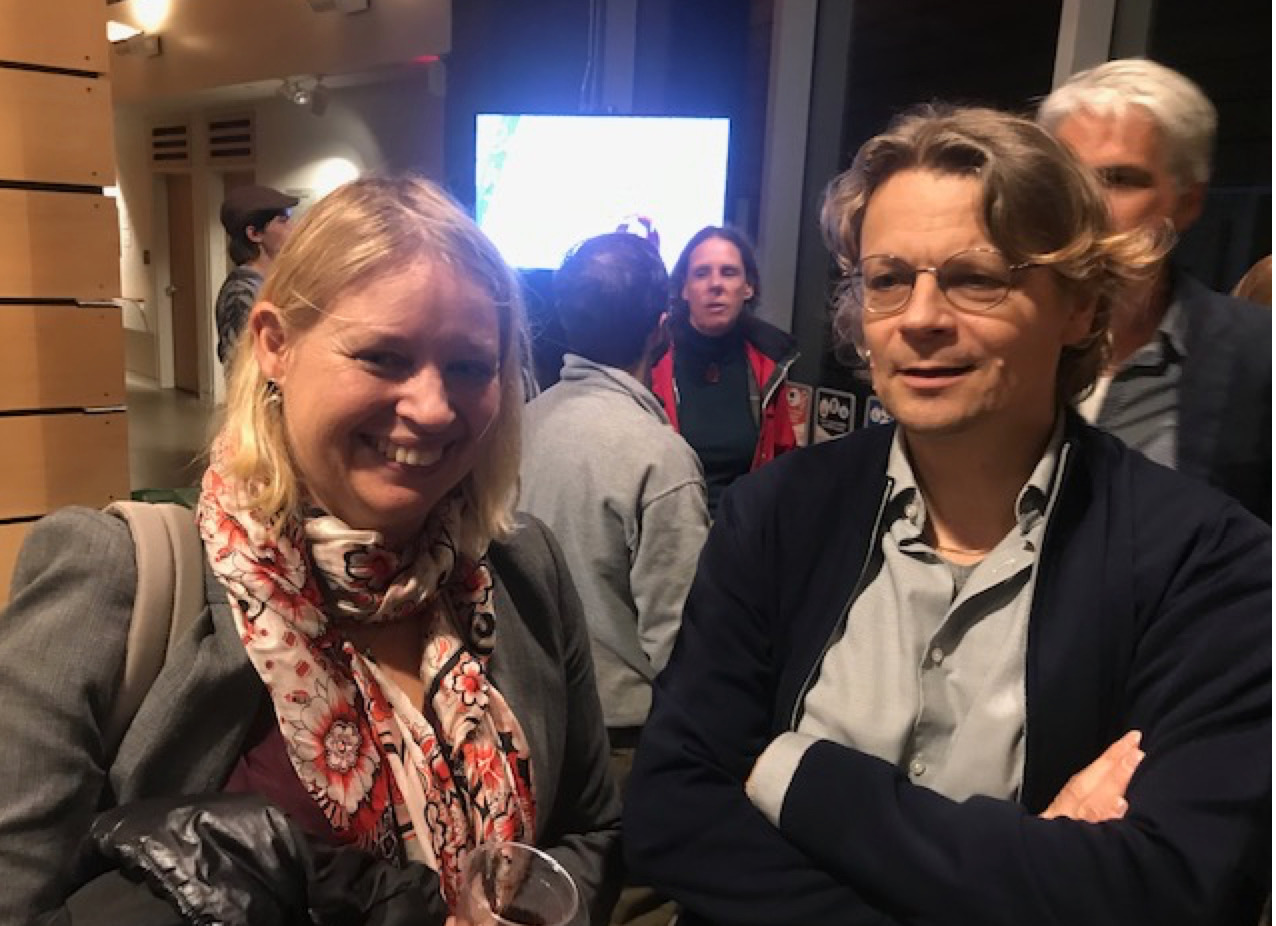
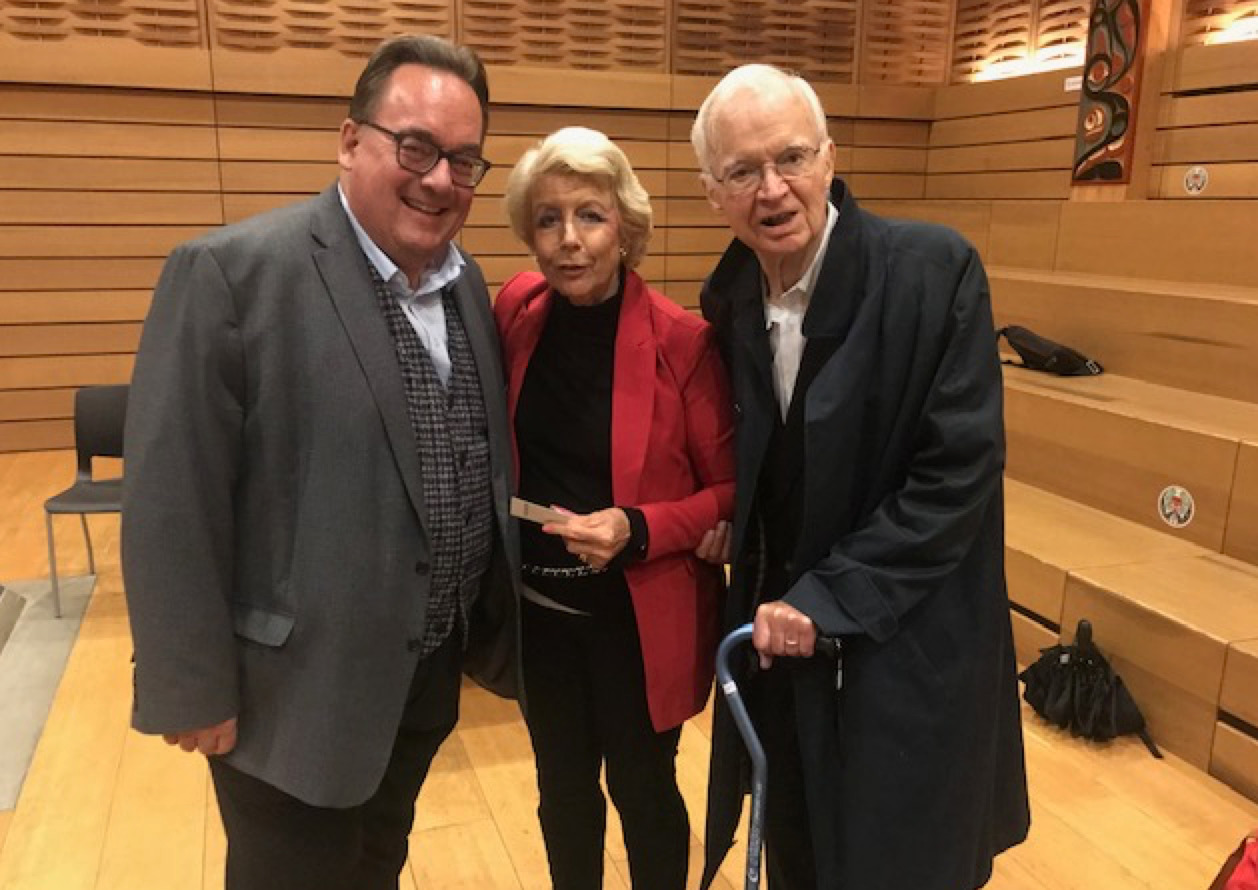
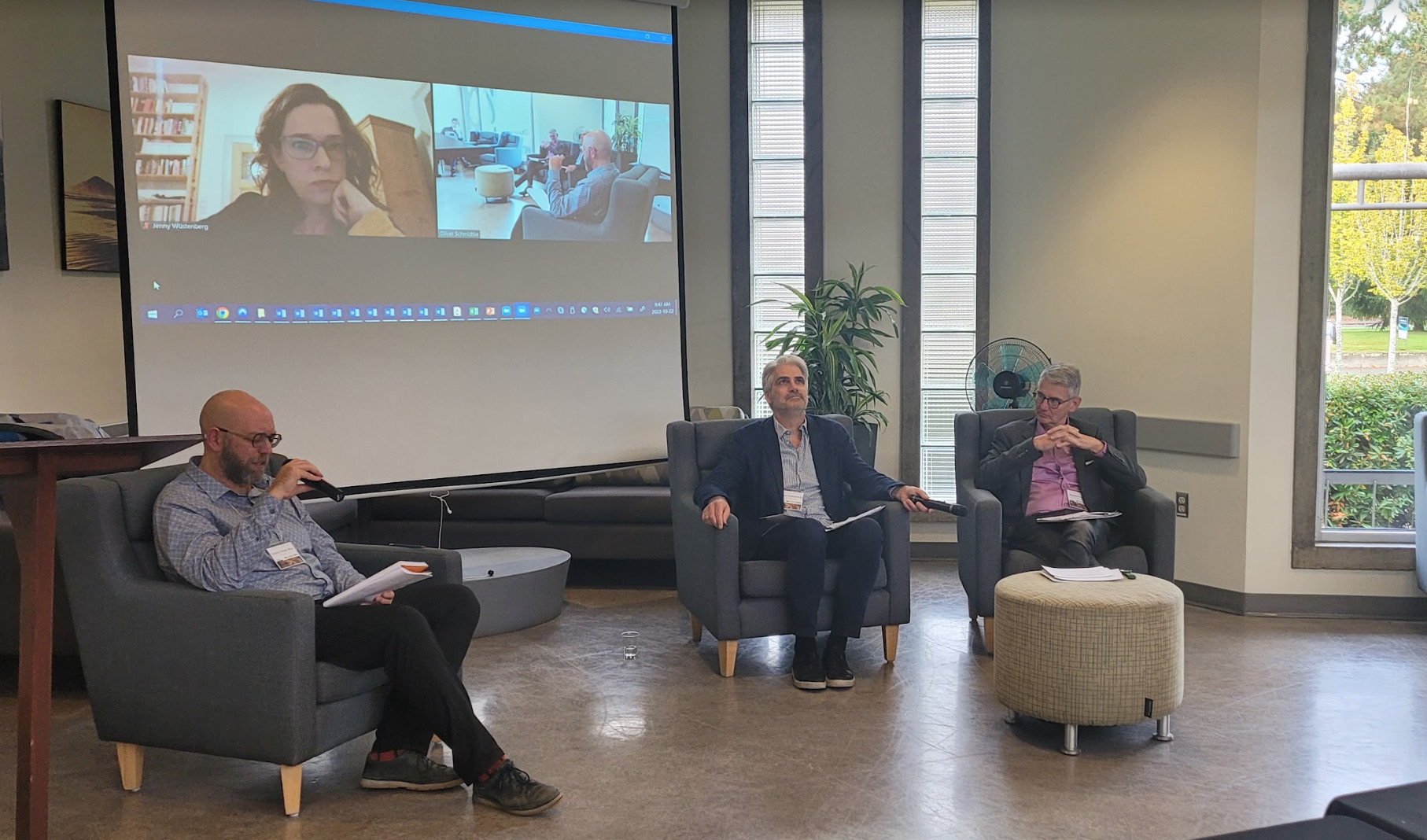
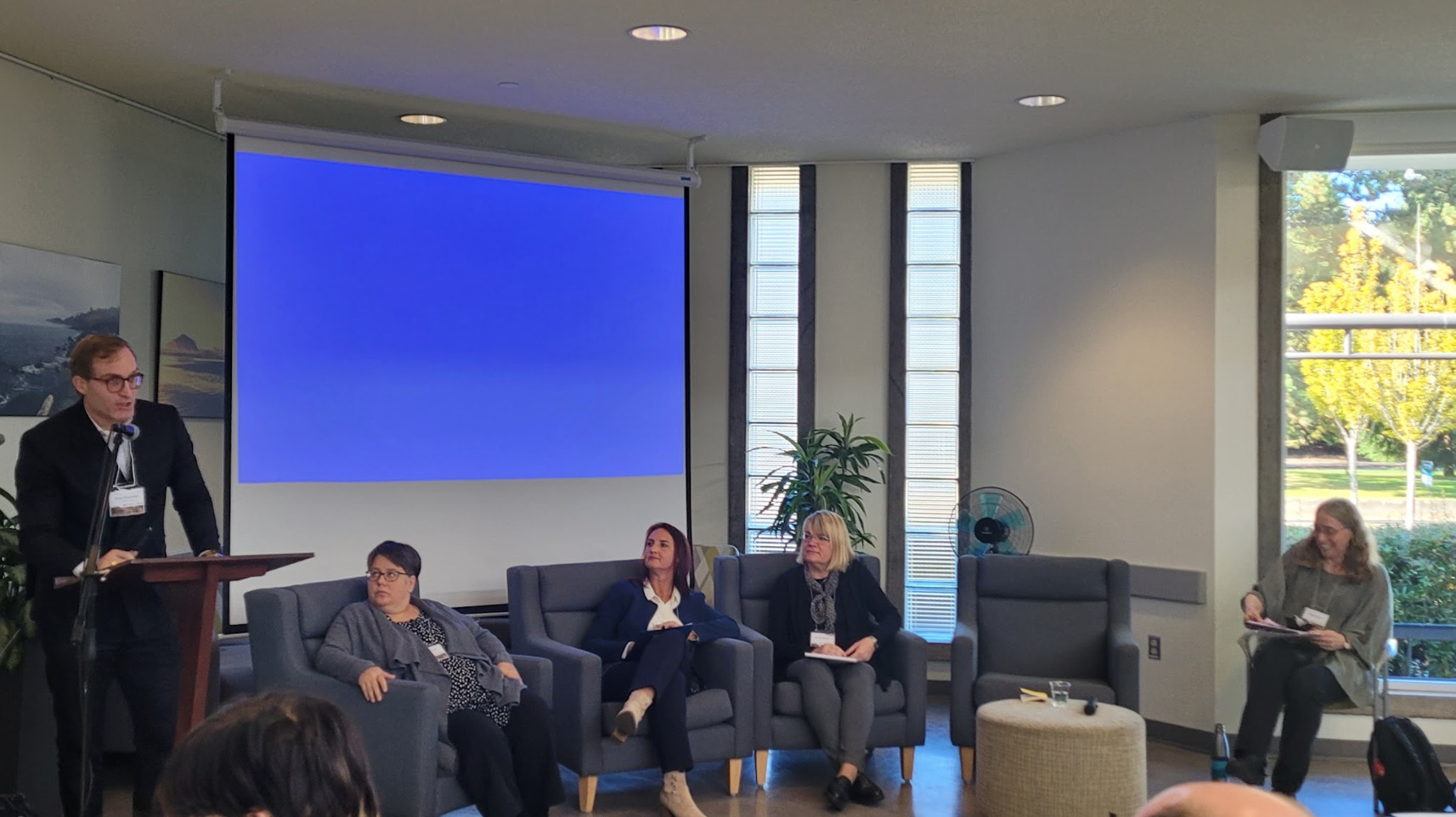
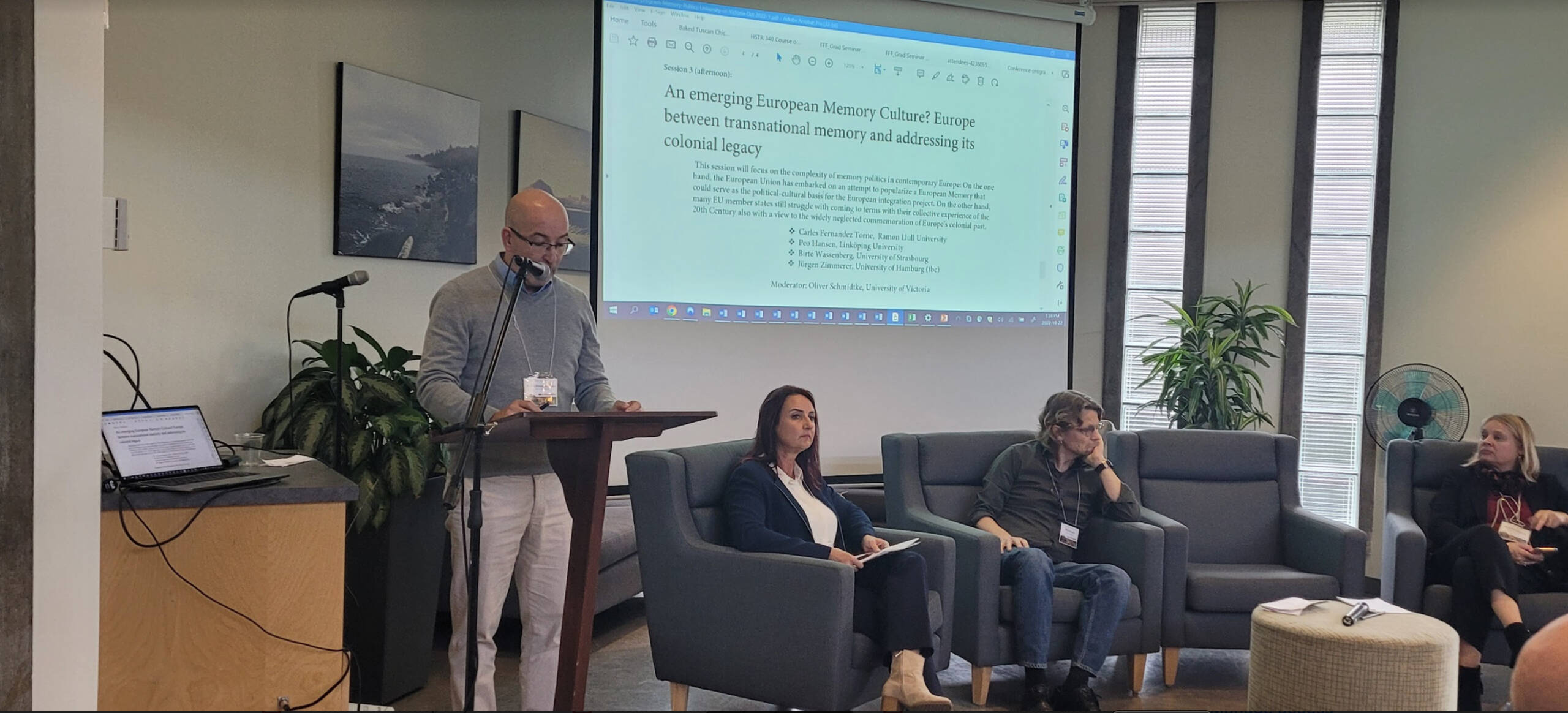
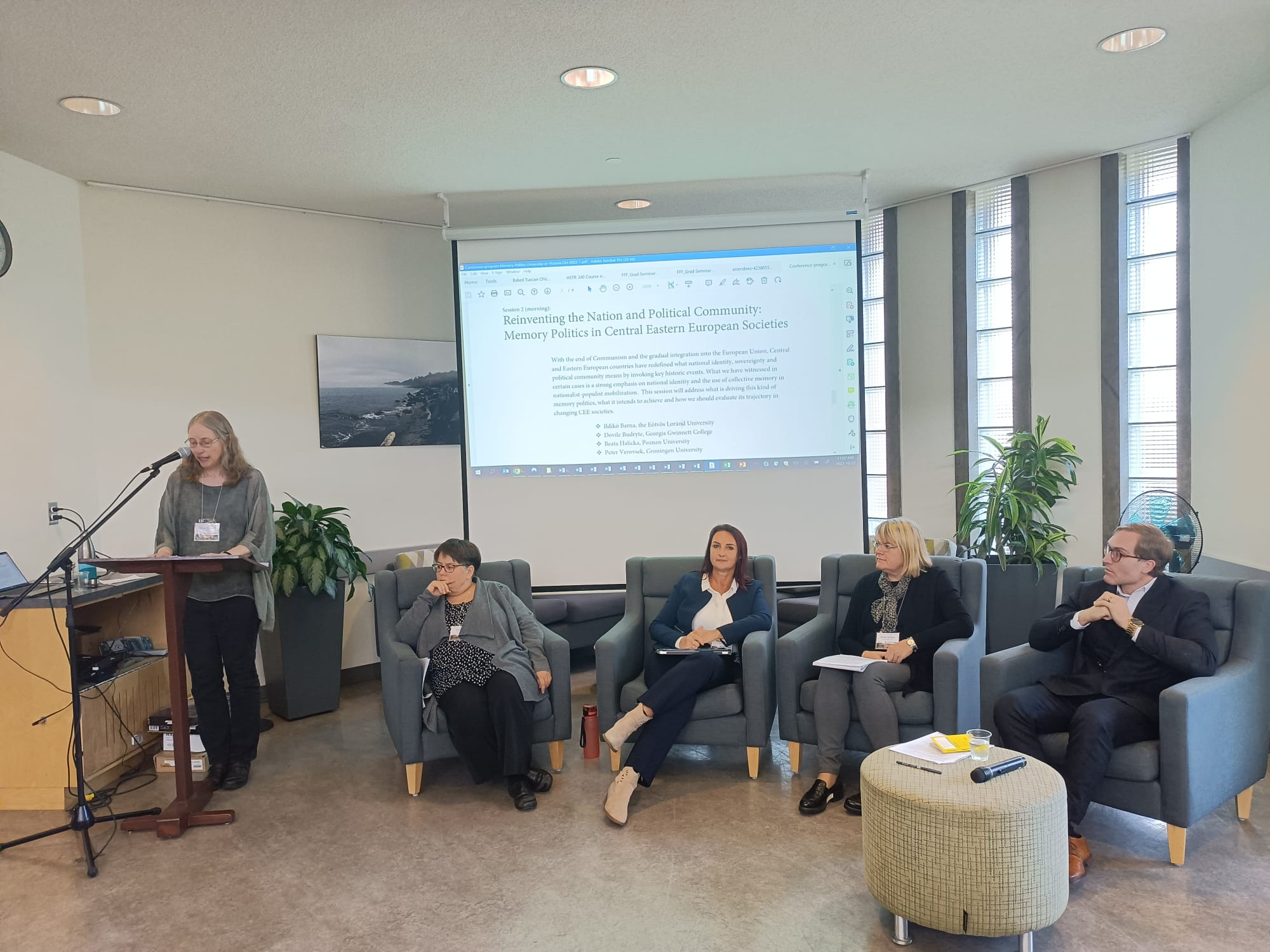
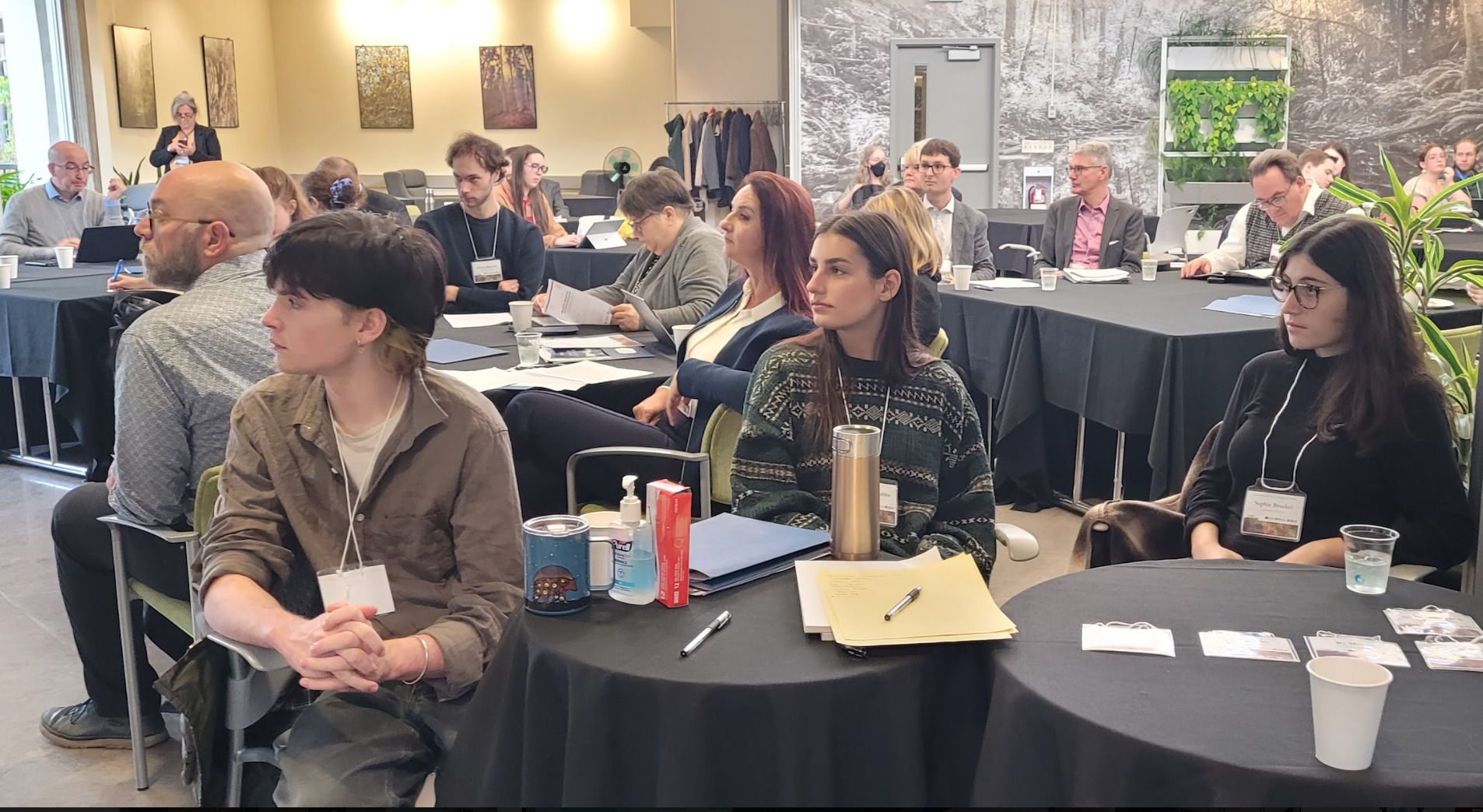
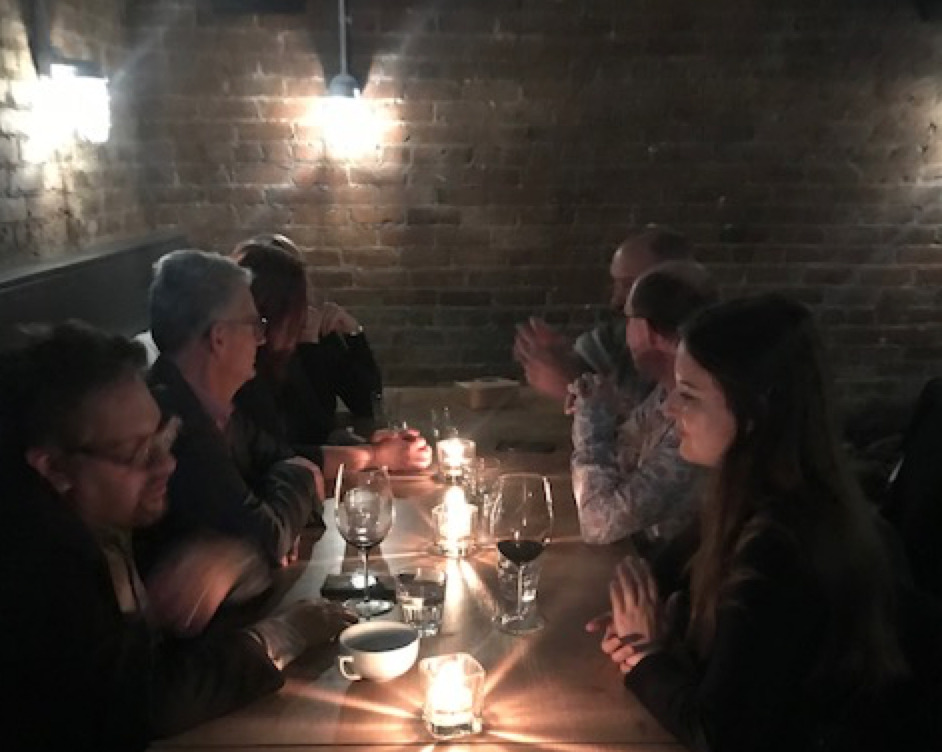
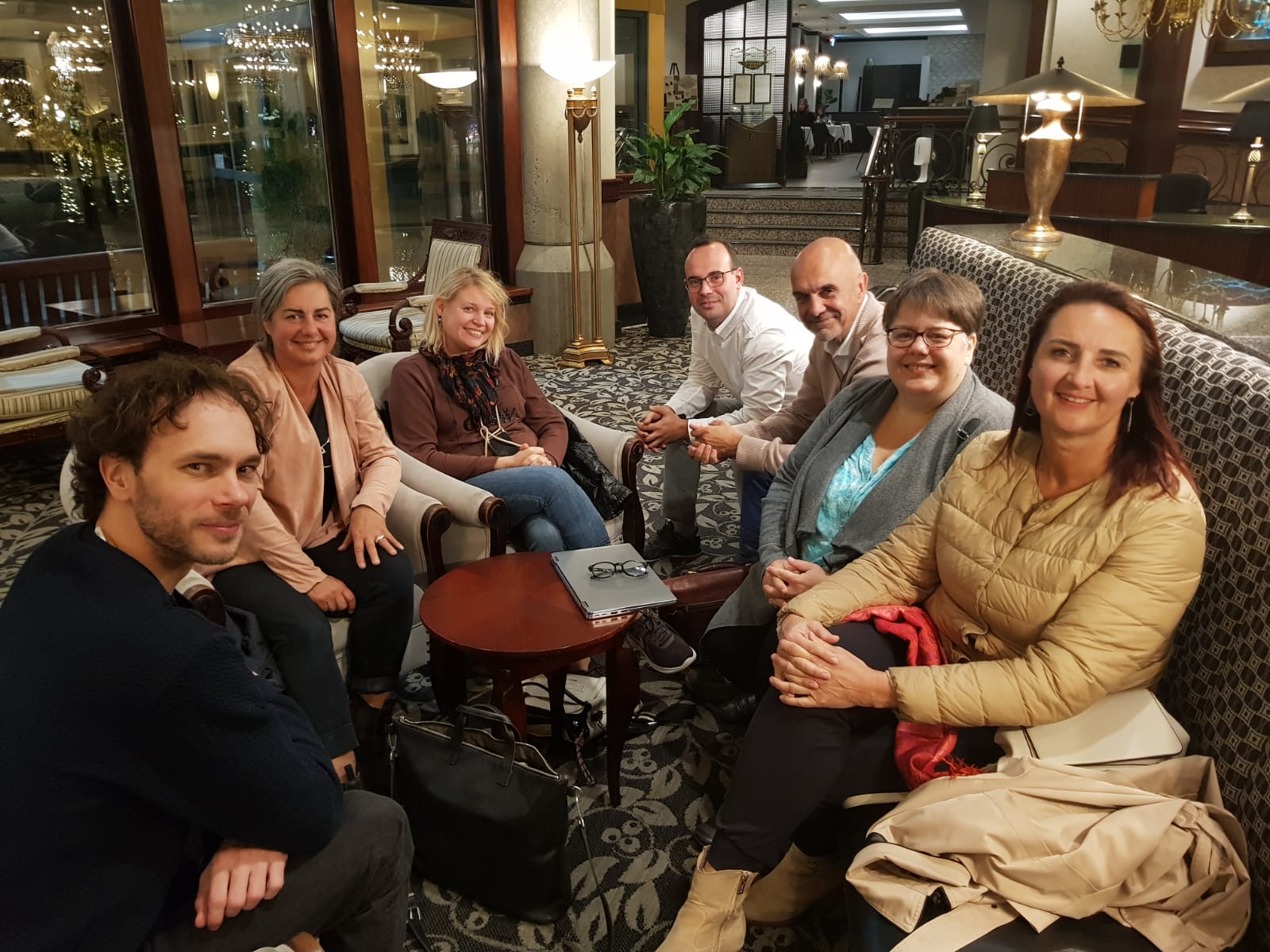
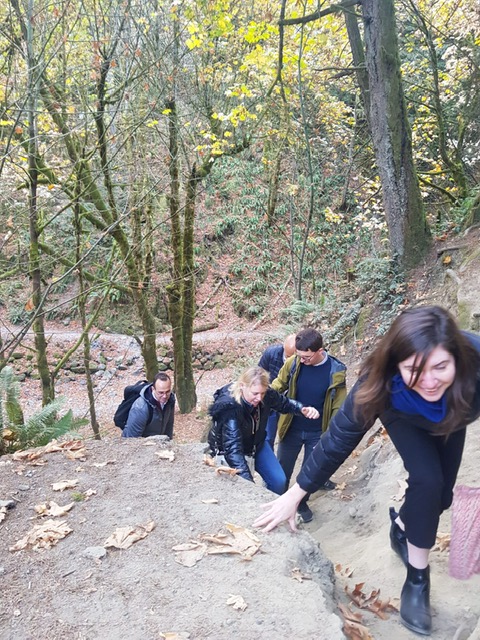
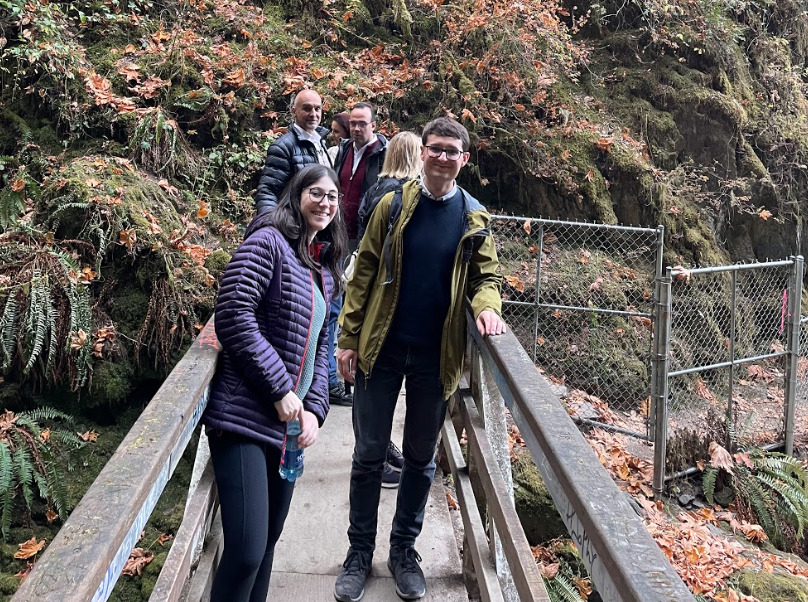
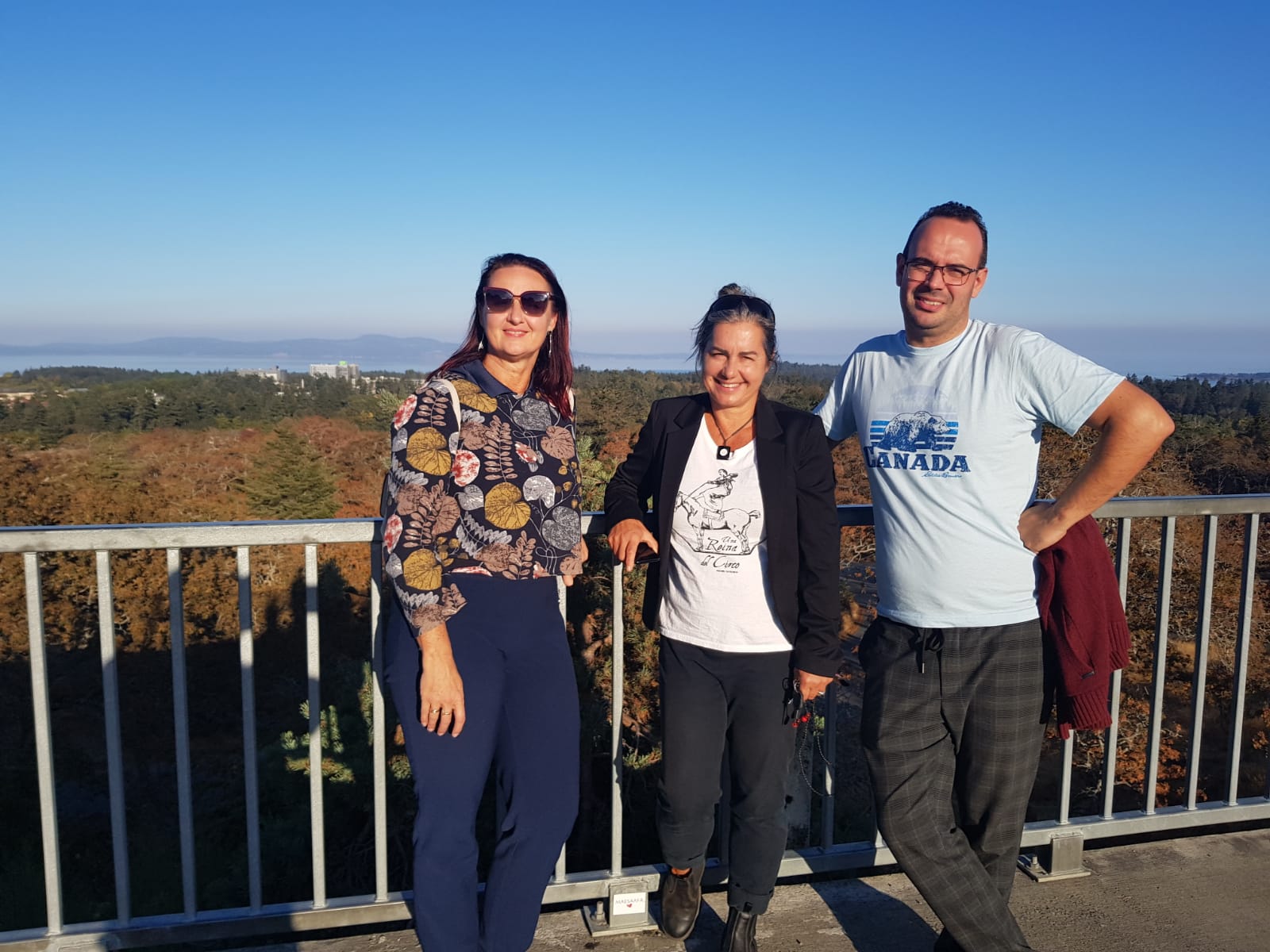
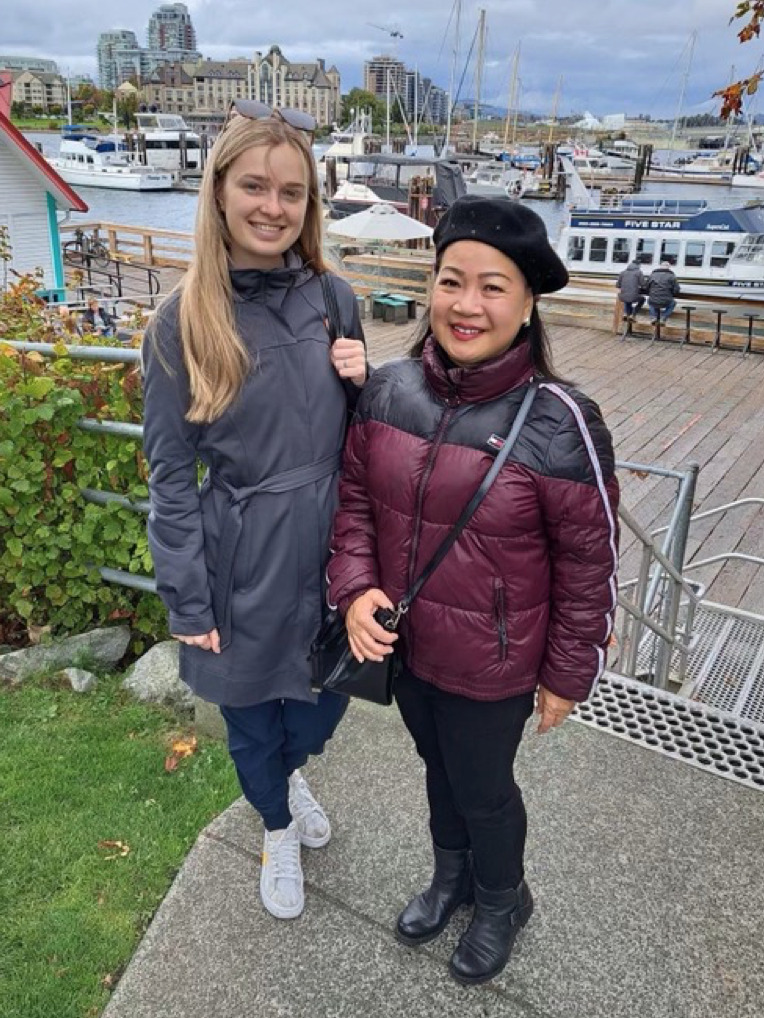
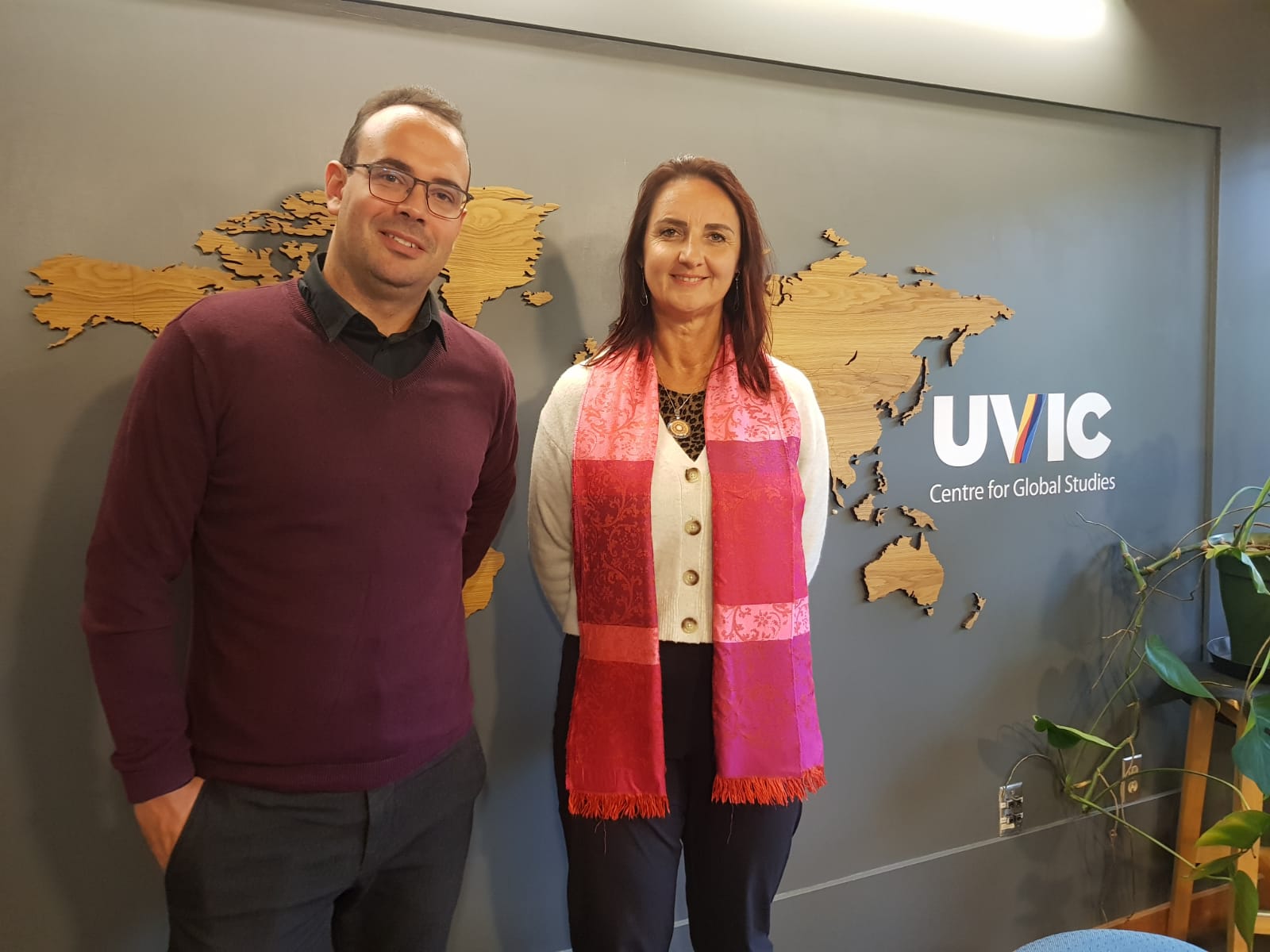
For more see the future video clips on our EUCAnet YouTube chanel or explore the readings:
Reading List
- The Legacy of Canada’s Residential School System, by Matt James and Oliver Schmidtke
- The Sleeping Giant Awakens: Genocide, Indian Residential Schools, and the Challenge of Conciliation, by David B. MacDonald
- TAAPWAYWIN – A PODCAST THAT EXPLORES THE INTERSECTIONS BETWEEN TRUTH, MEMORY, POWER & HUMAN RIGHTS, by Ry Moran
- Poland’s Historical Turn – European Memory Politics – a short introduction, by Piotr Oleksy and Beata Halicka
- Germany: Mastering the Past and Reinventing National Identity – European Memory Politics – a short introduction, by Oliver Schmidtke
- Hungary’s Fragmented Historical Memory – European Memory Politics – a short introduction, by Ildikó Barna
- Memory and the future of Europe. Rupture and integration in the wake of total war, by Peter Verovšek
- Dignity on the Prut River, by Piotr Oleksy
- The Polish Wild West – Forced Migration and Cultural Appropriation on the Polish-German Borderlands, 1945-1948, by Beata Halicka
